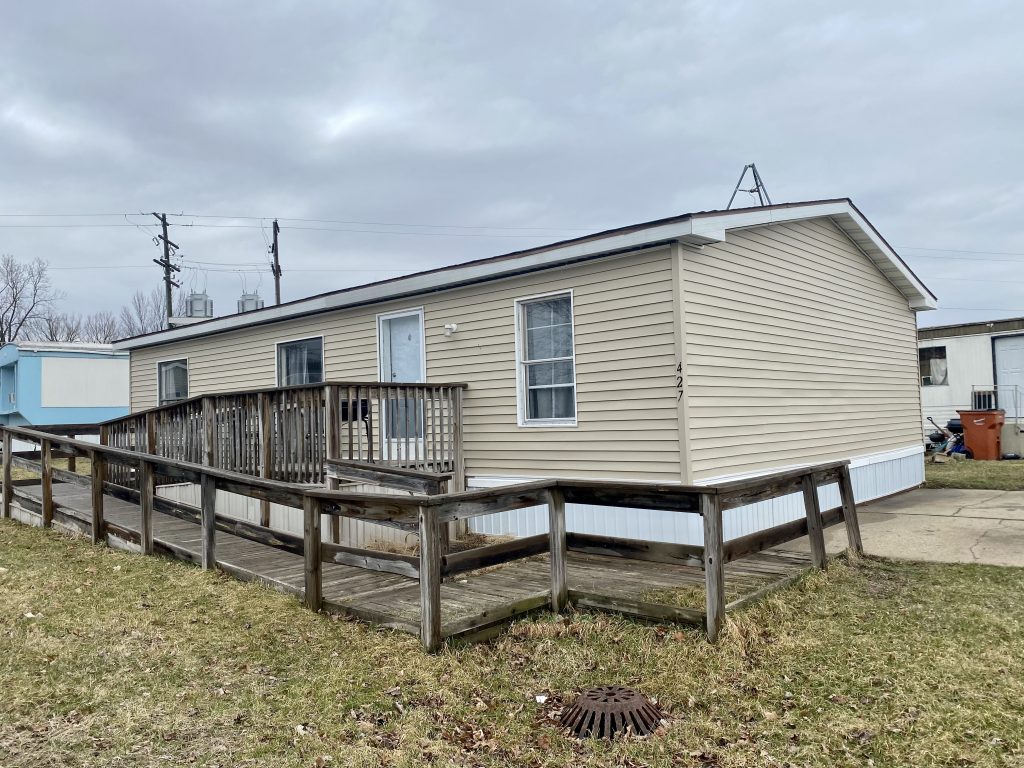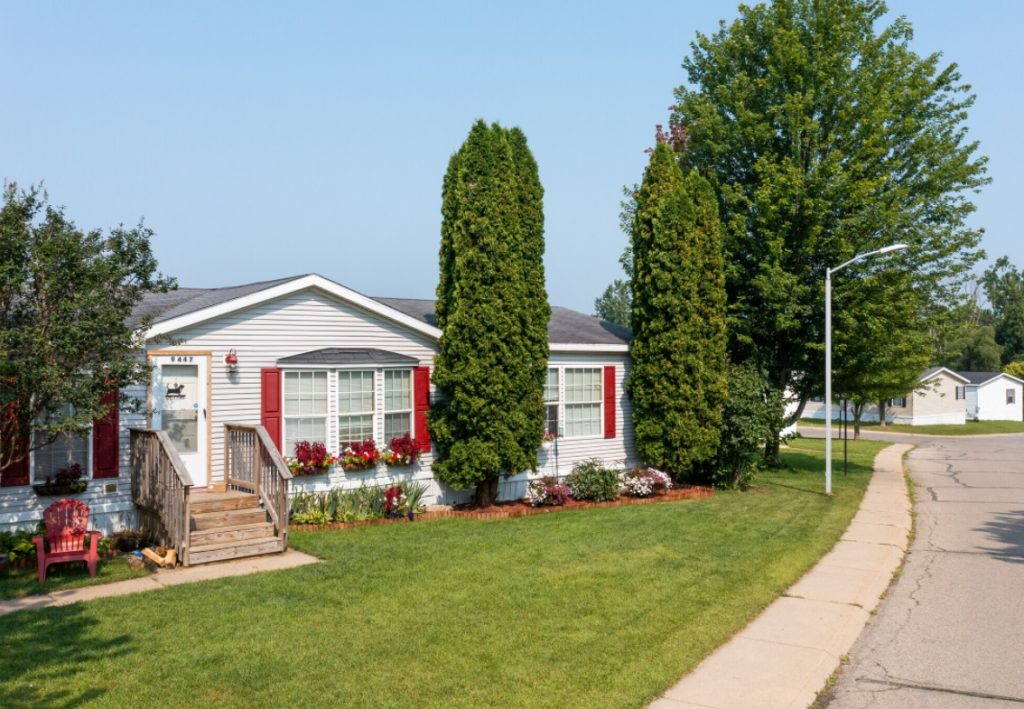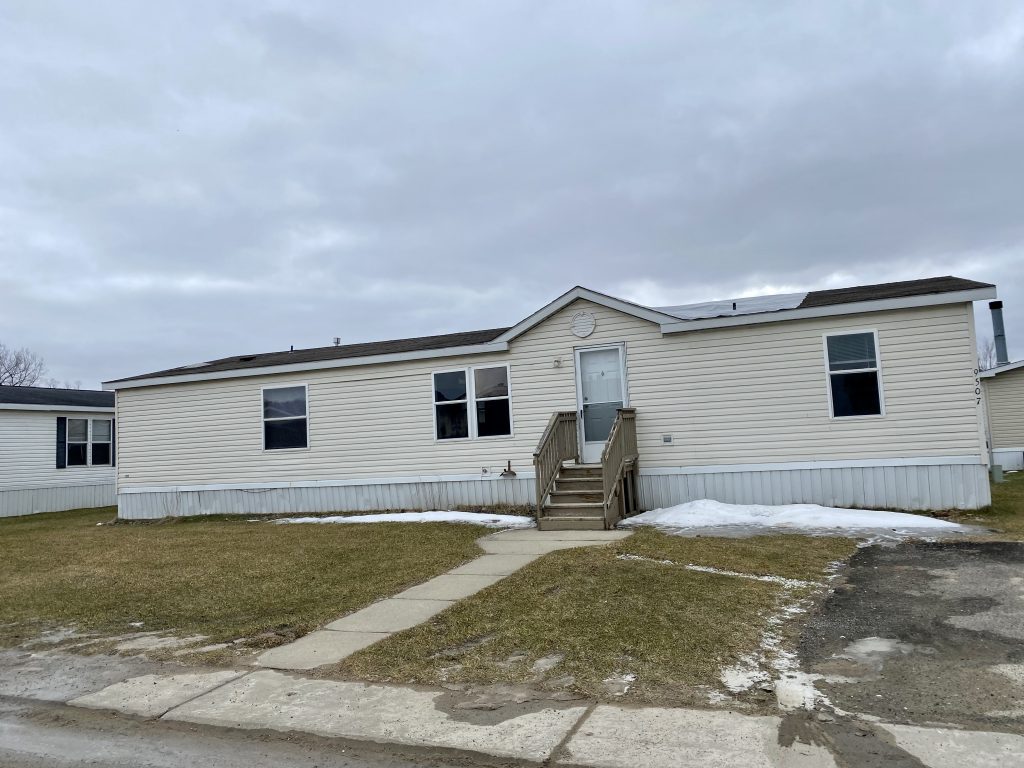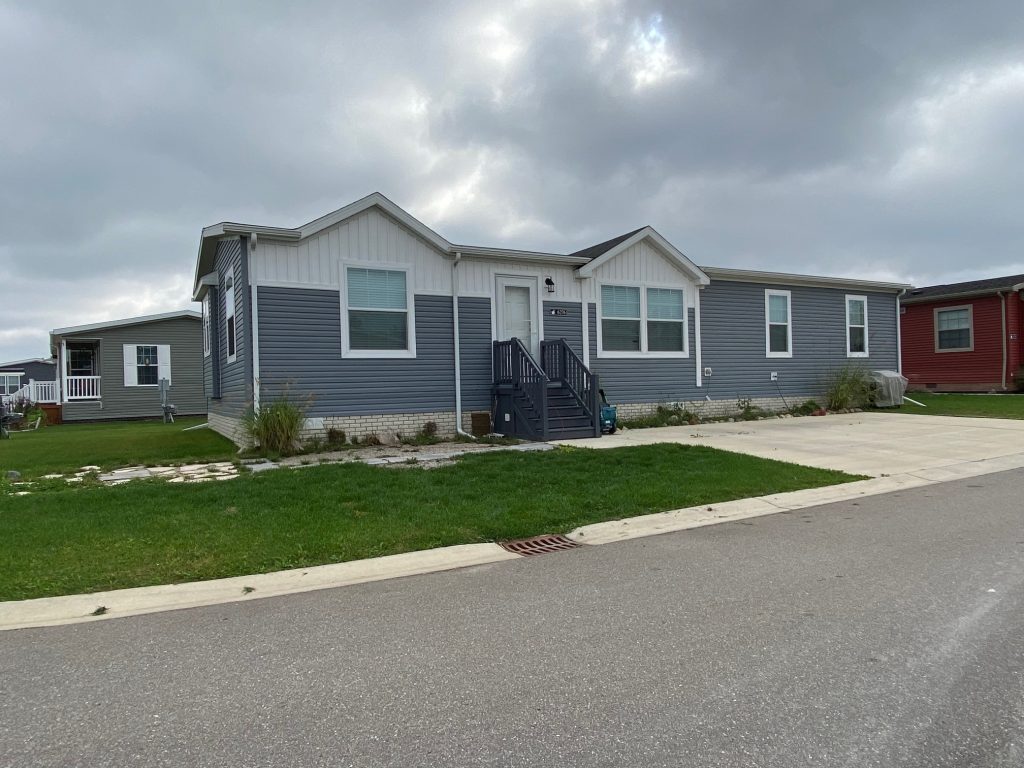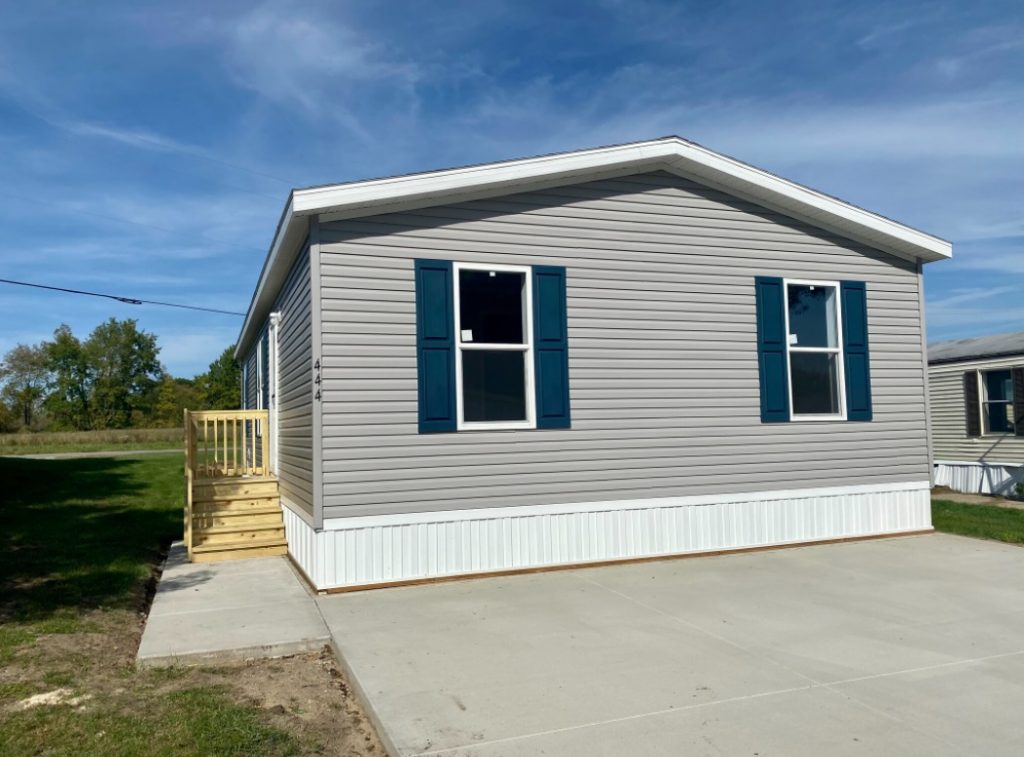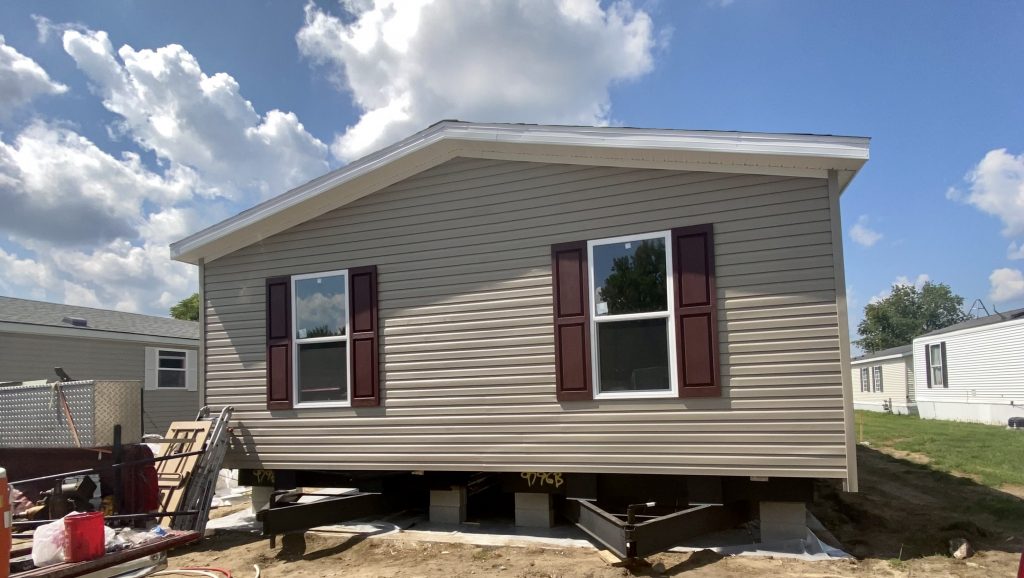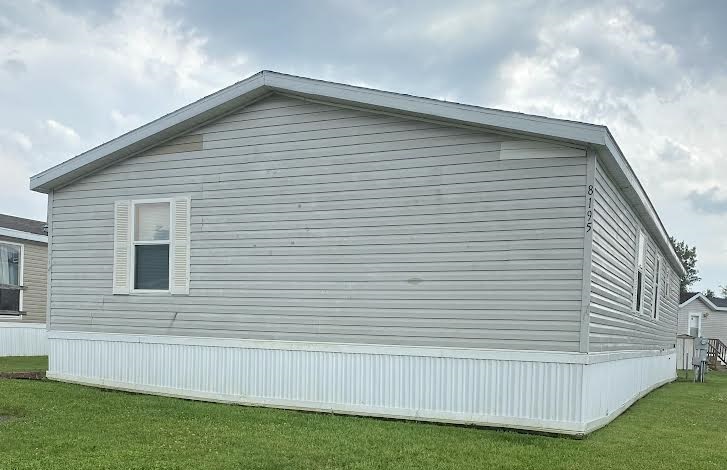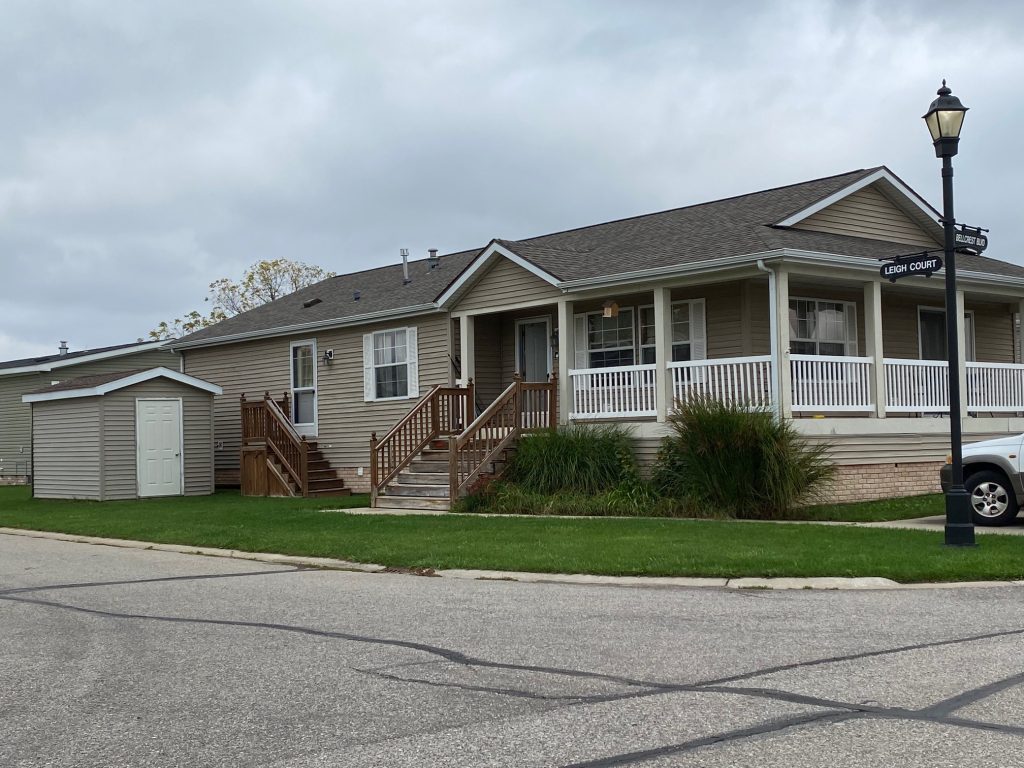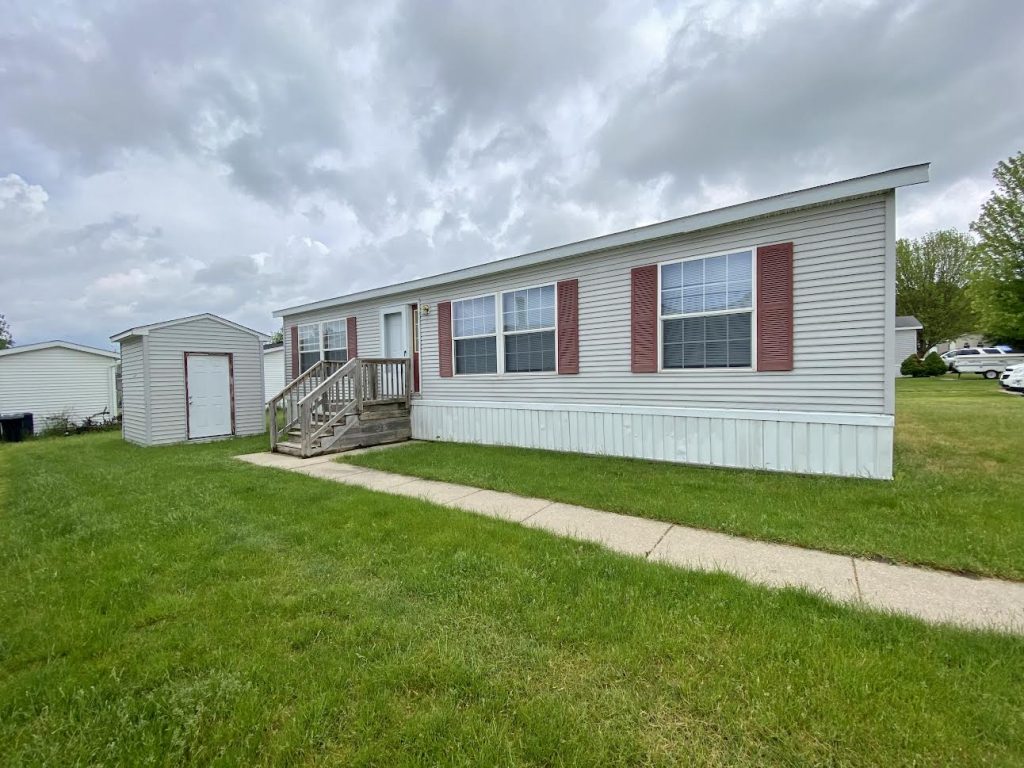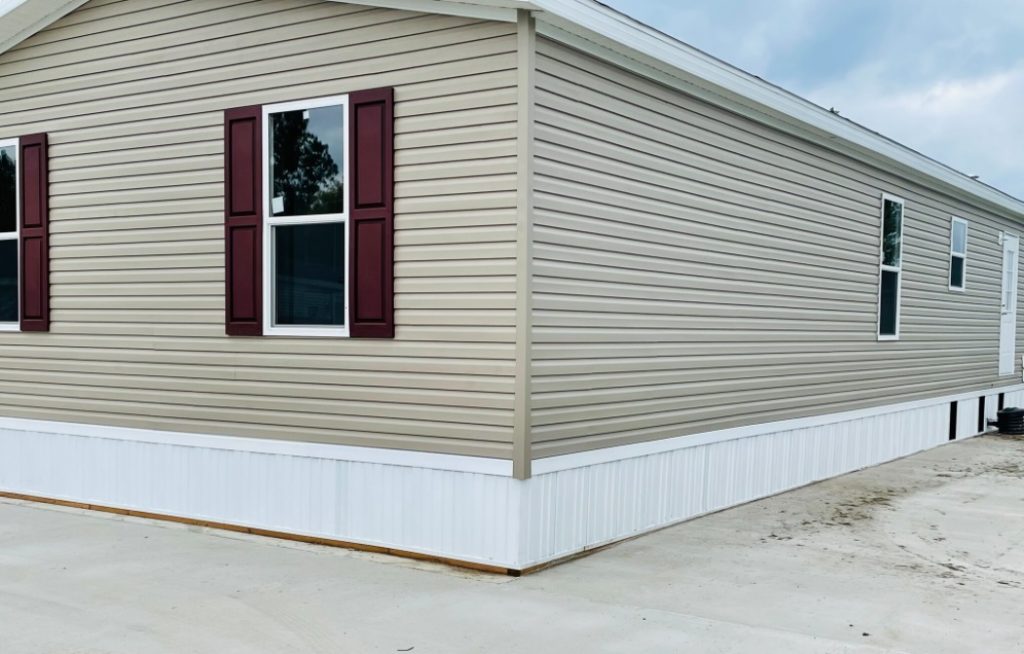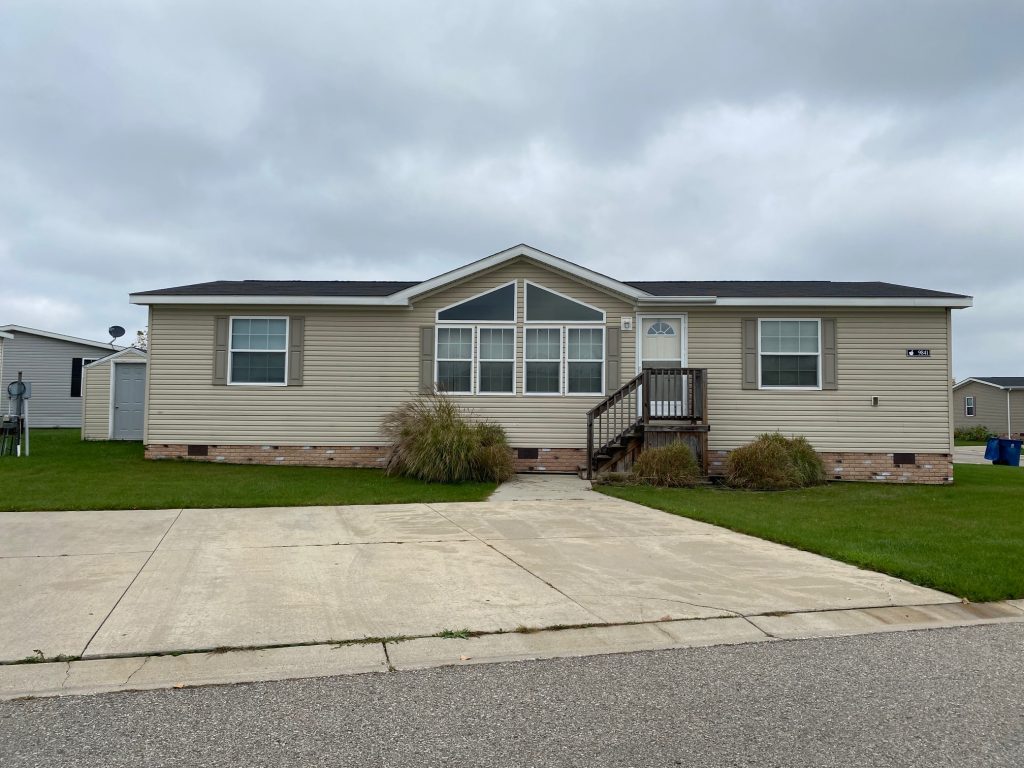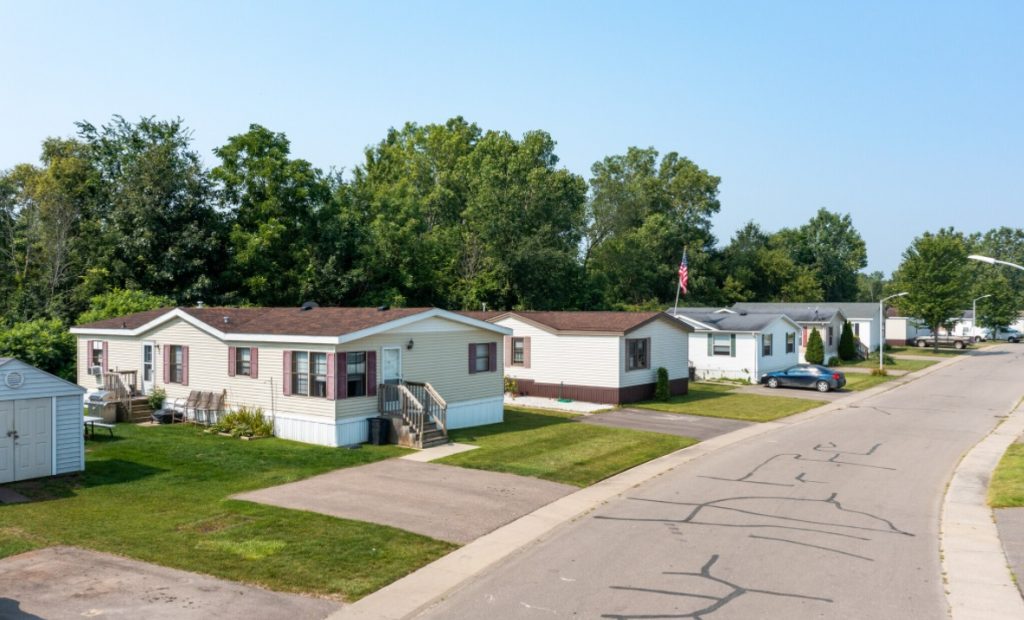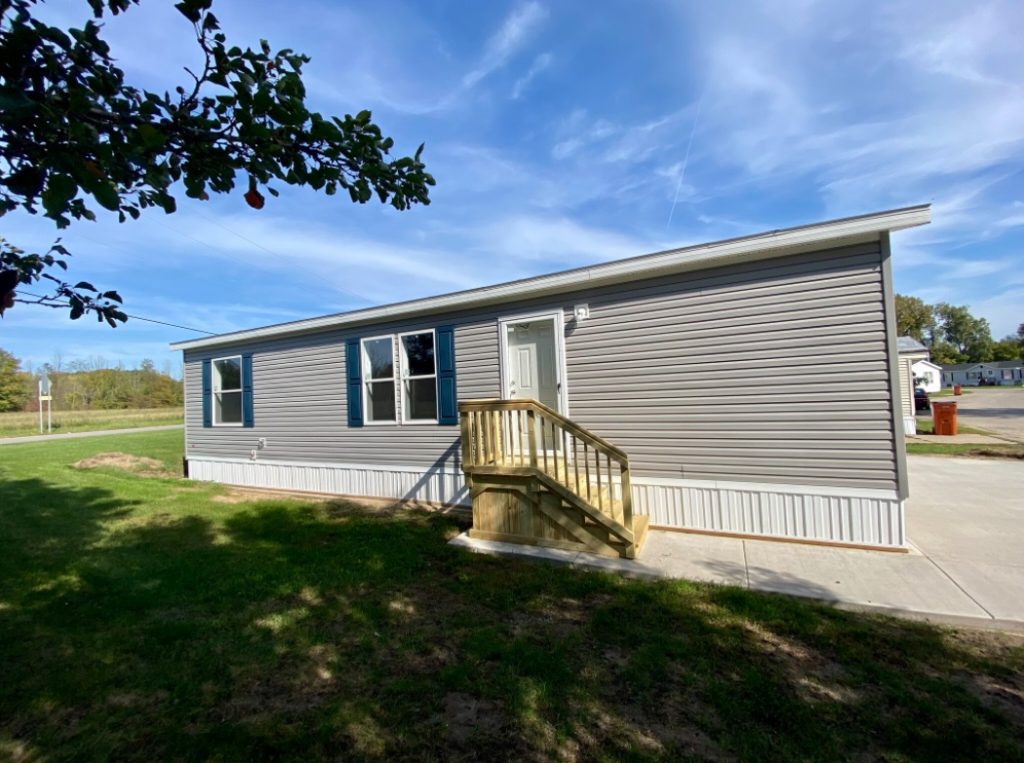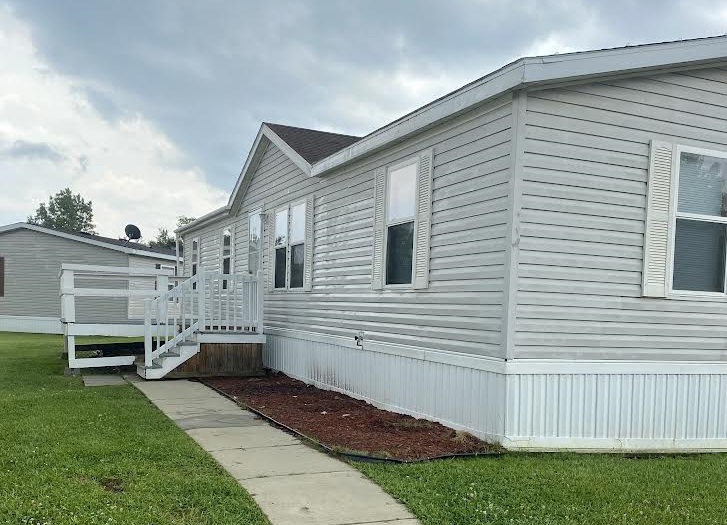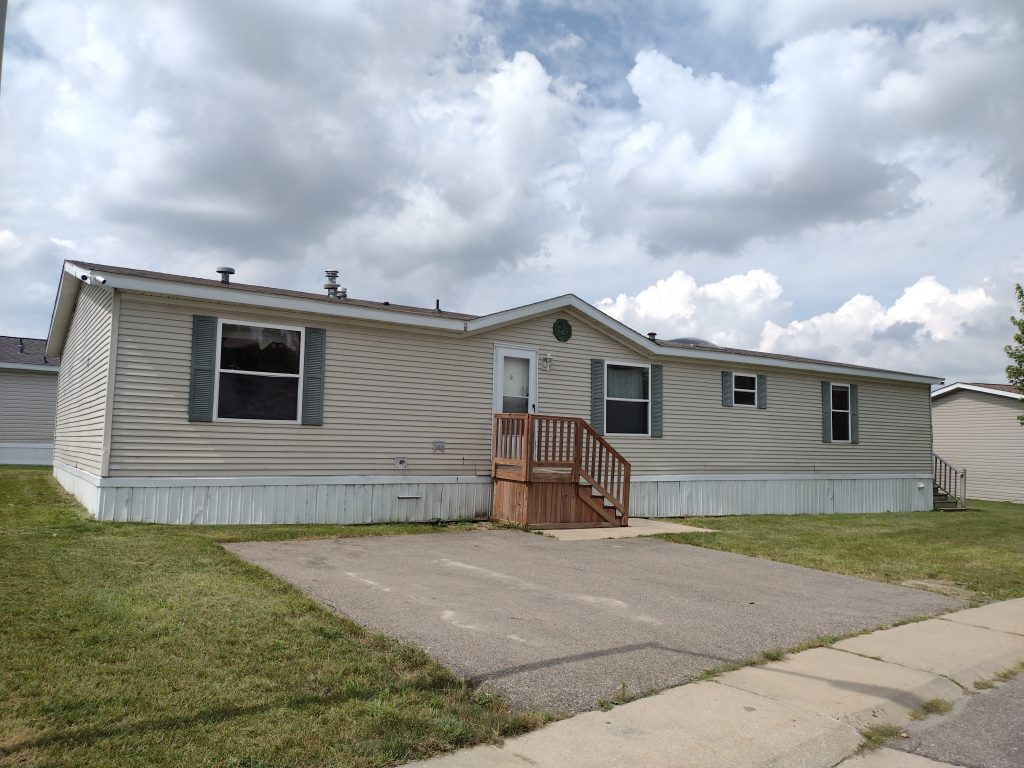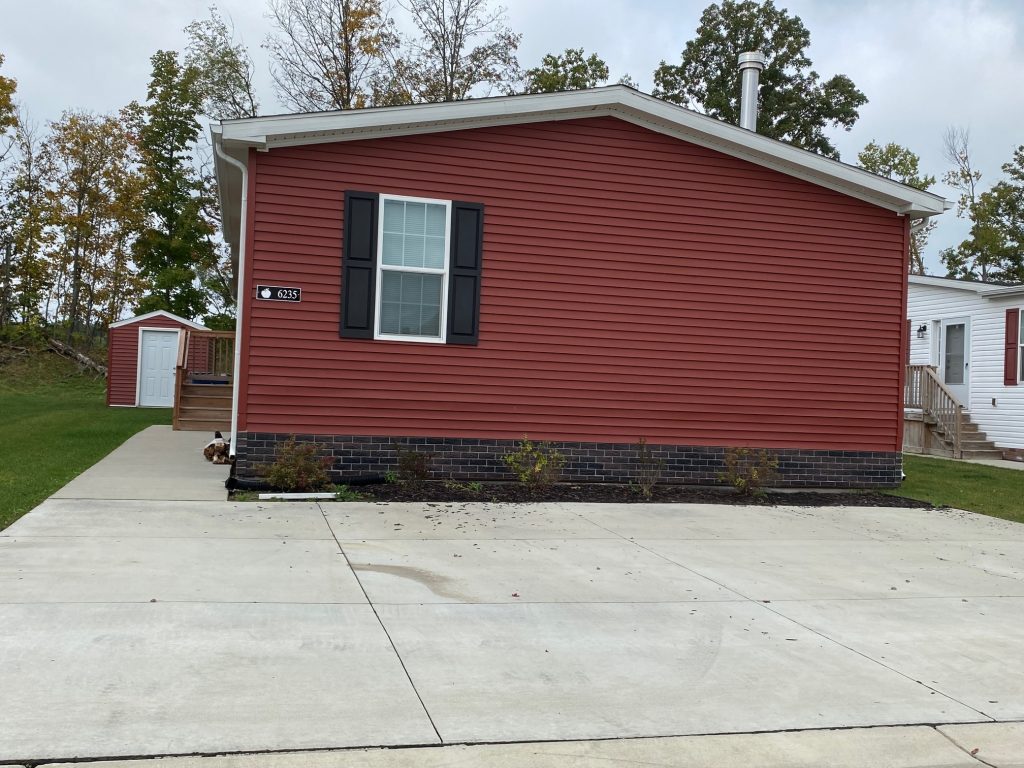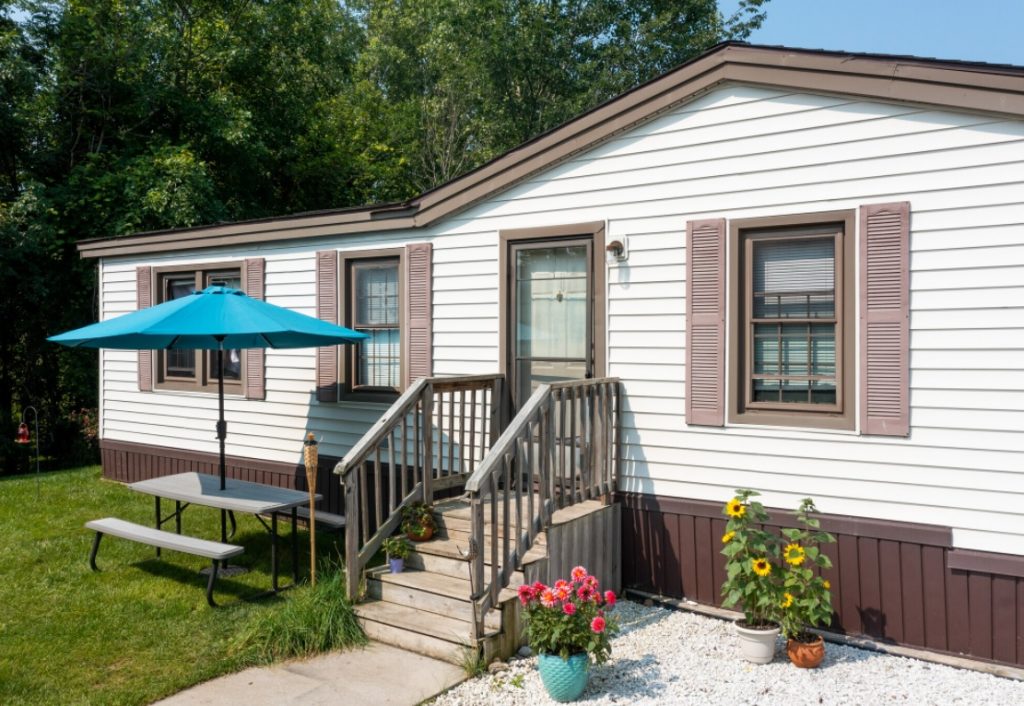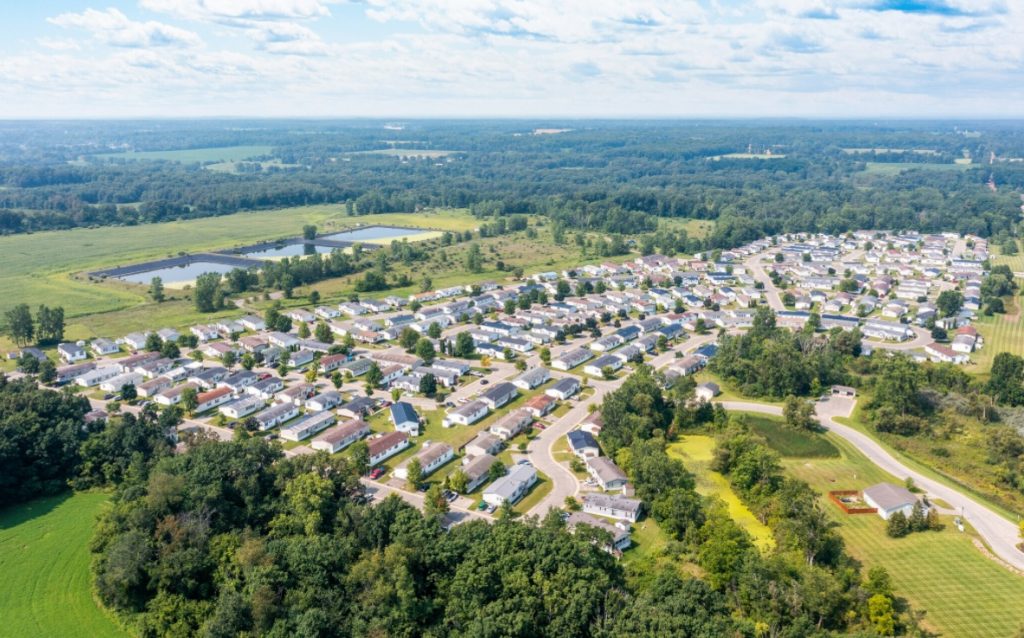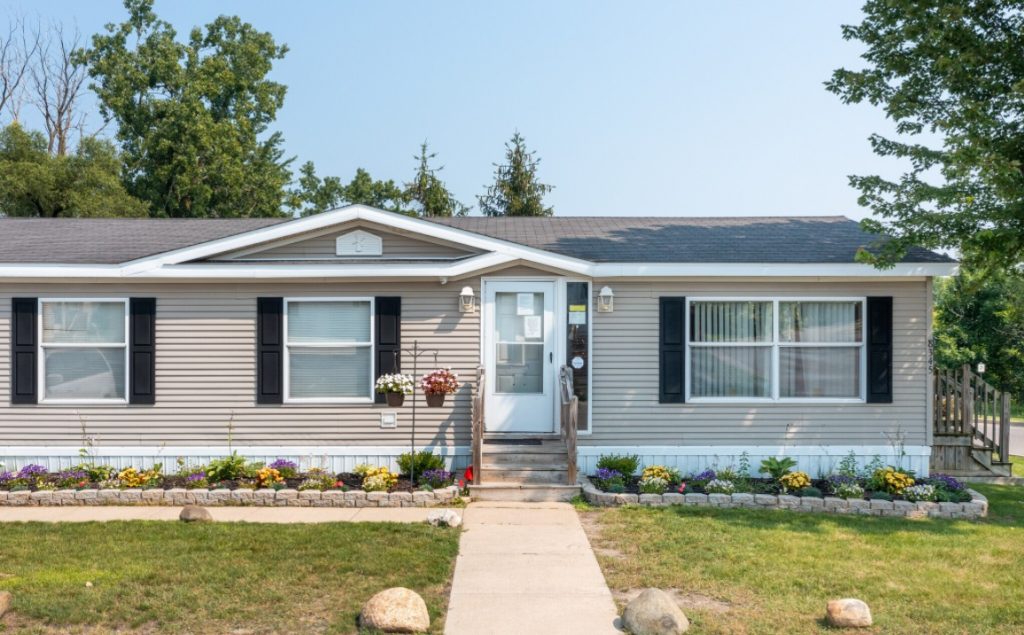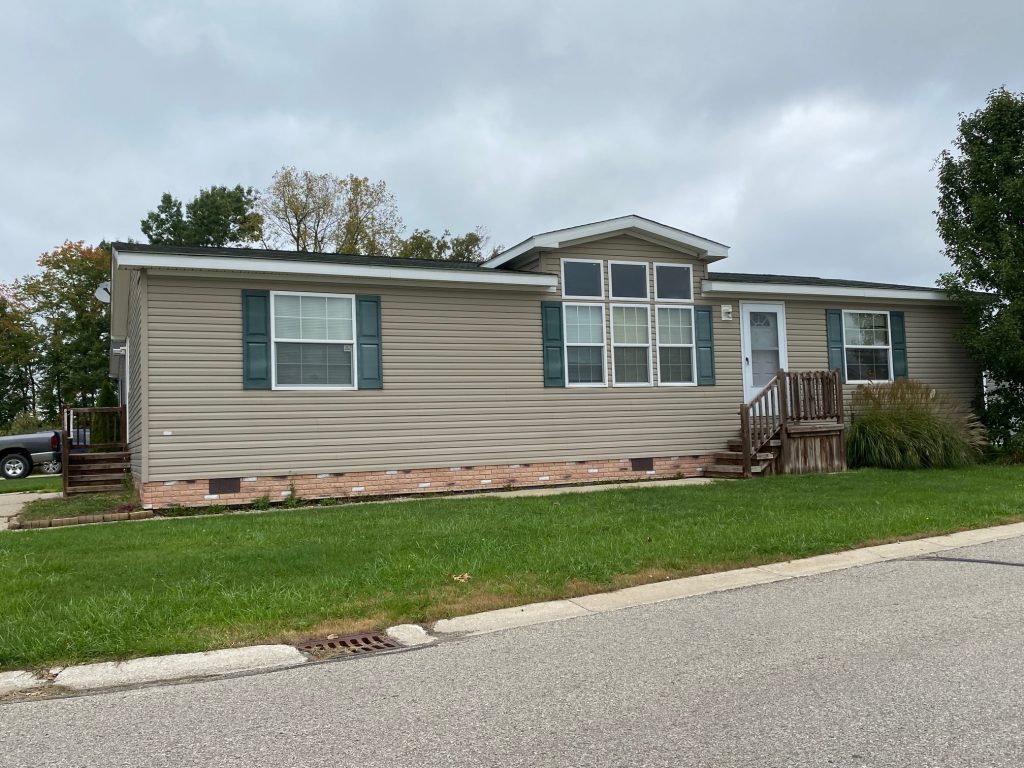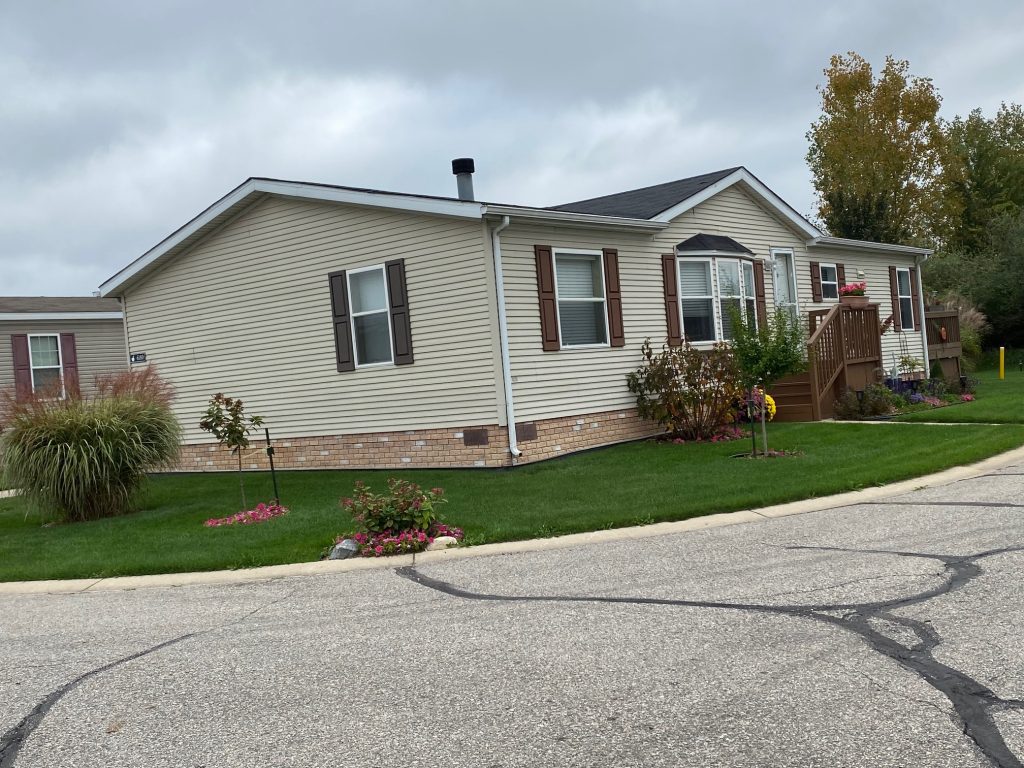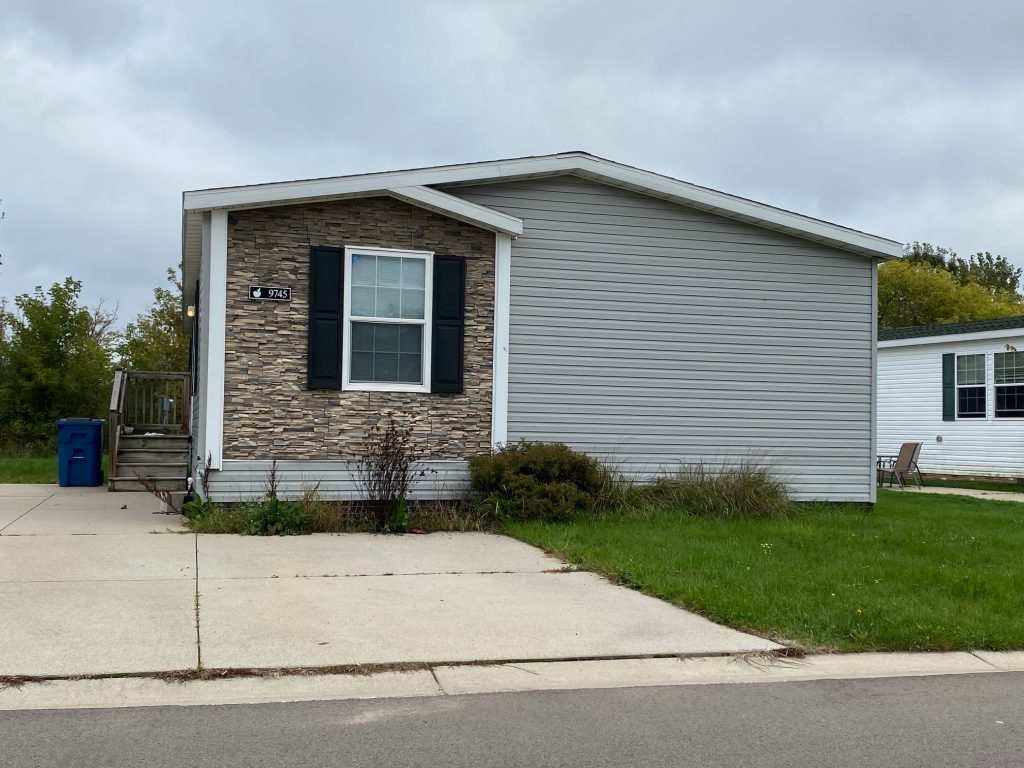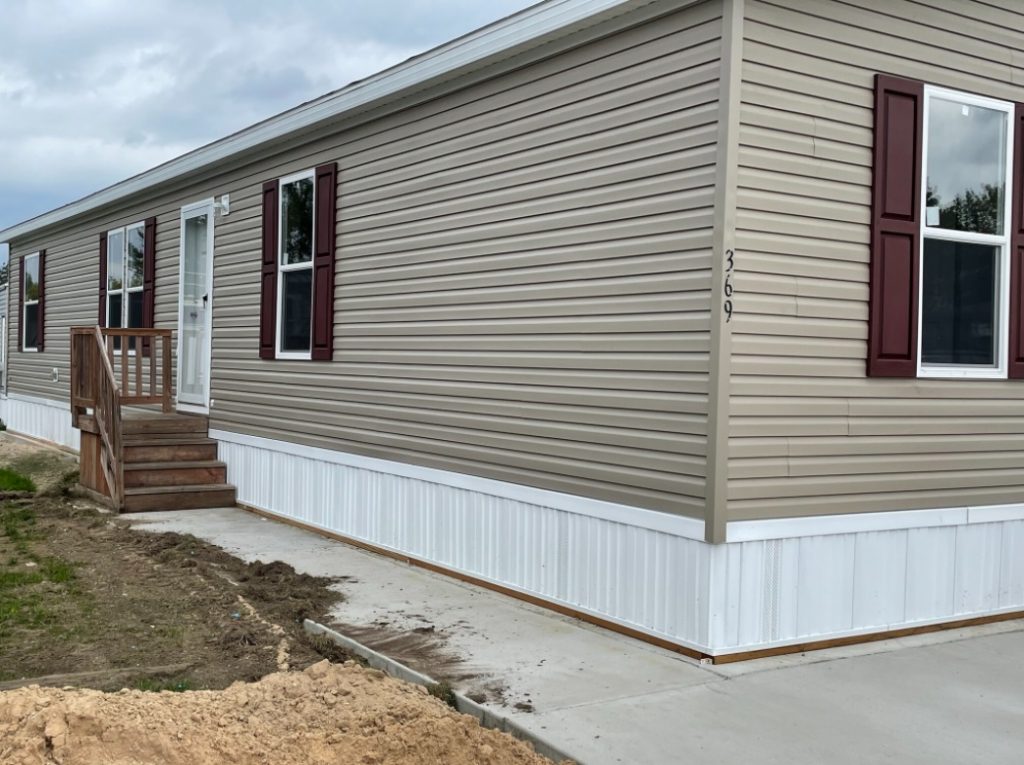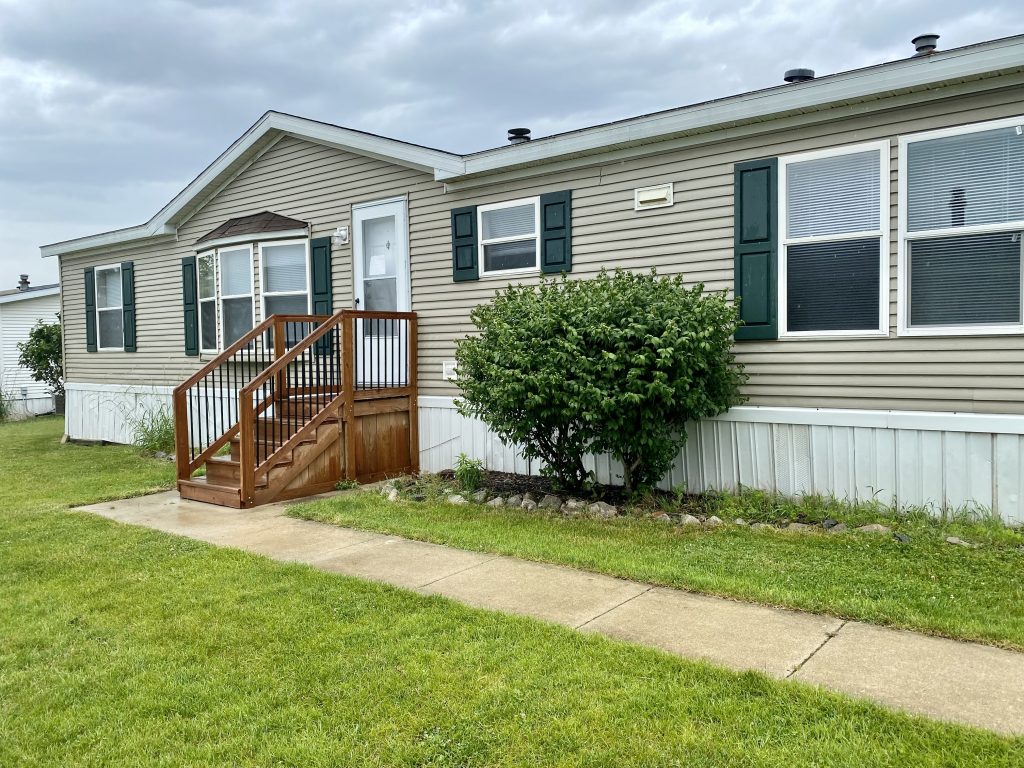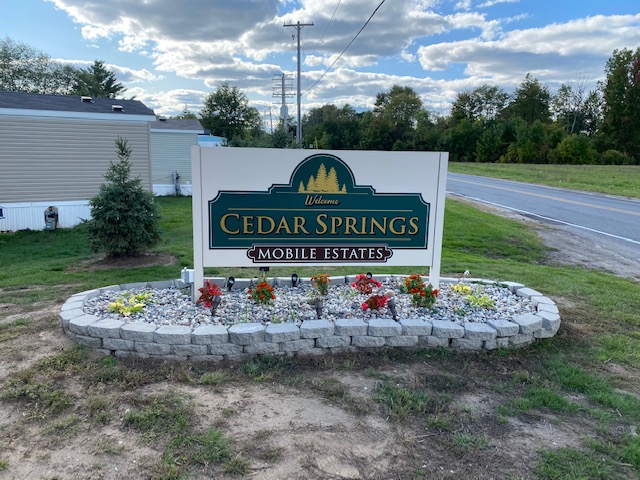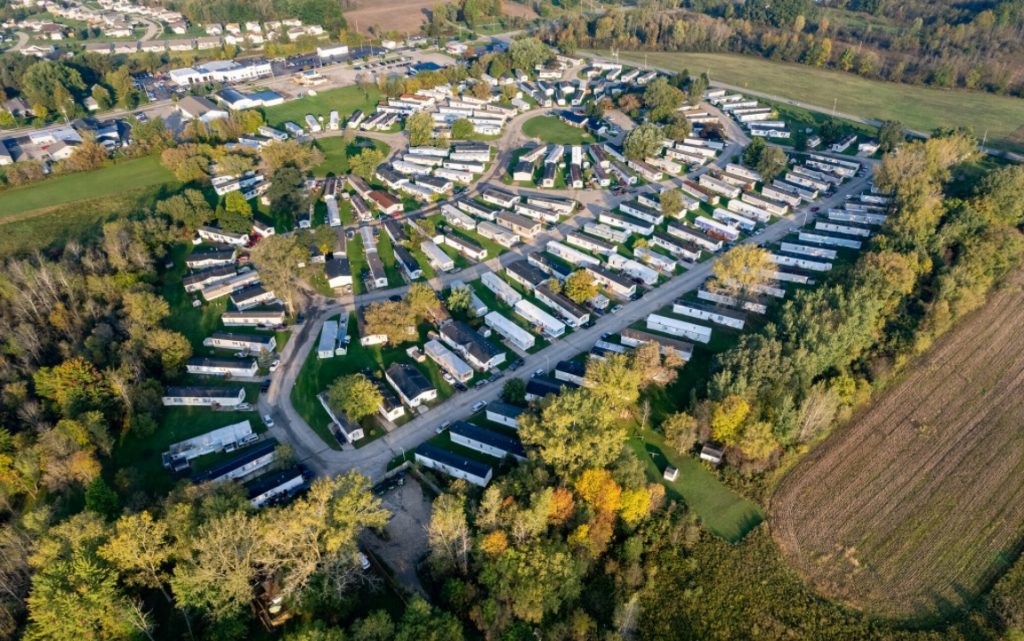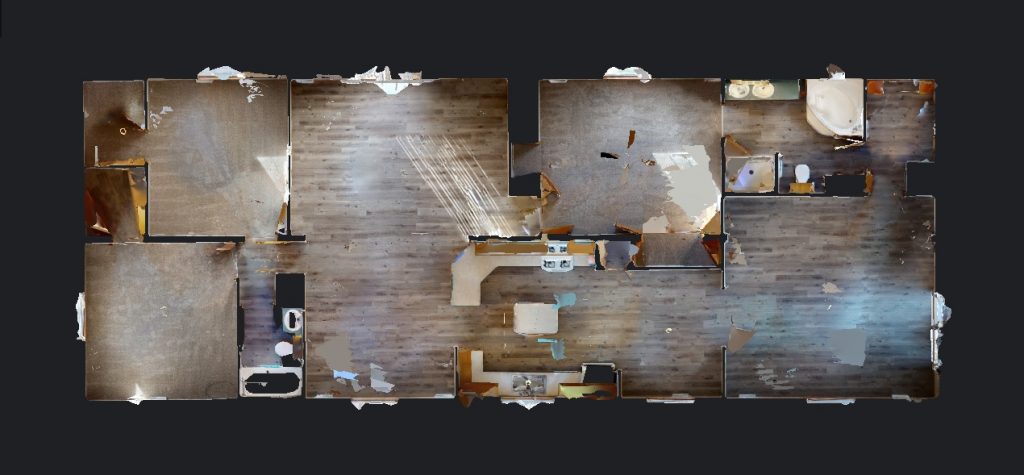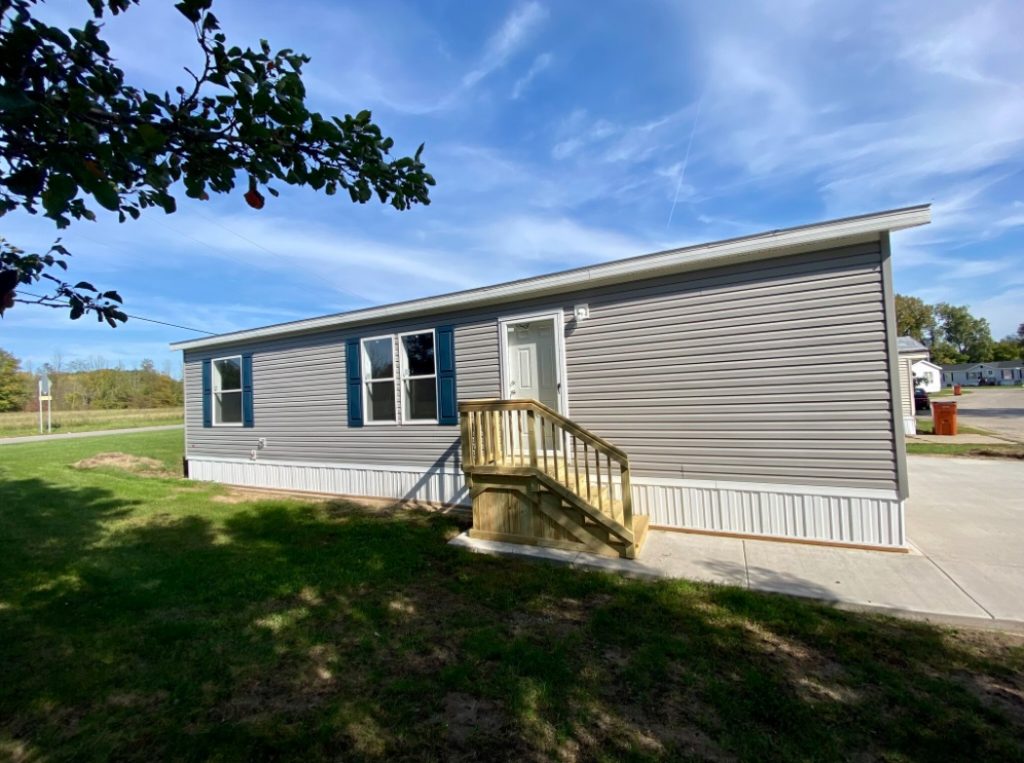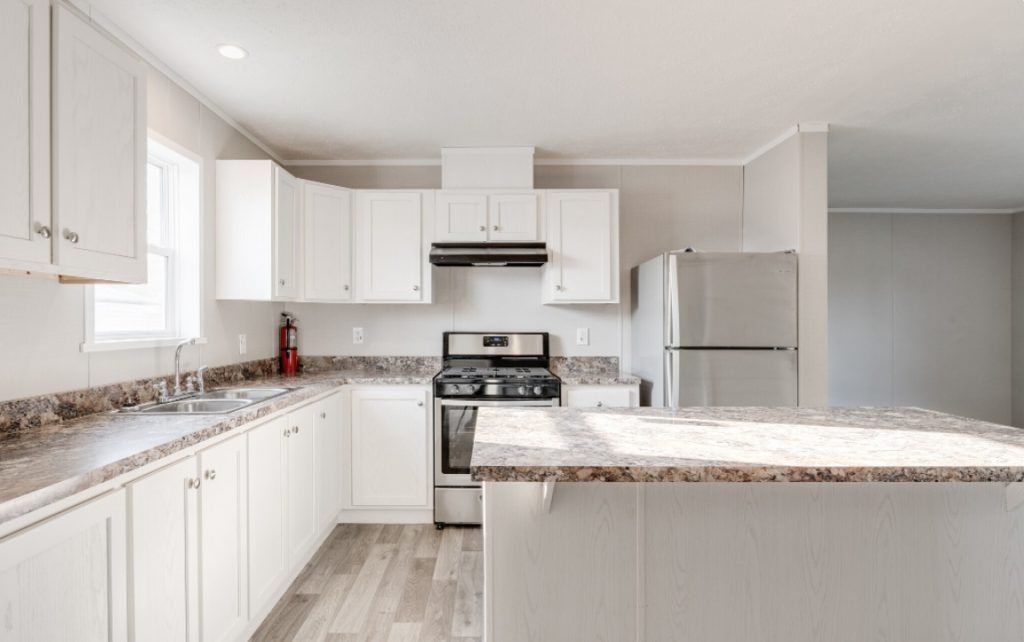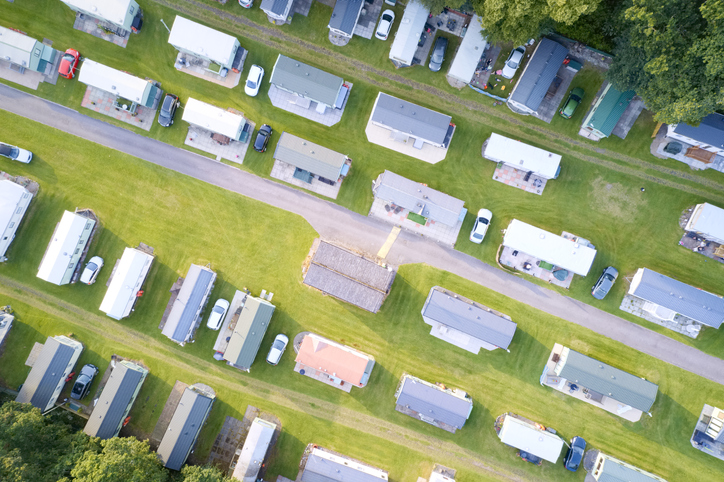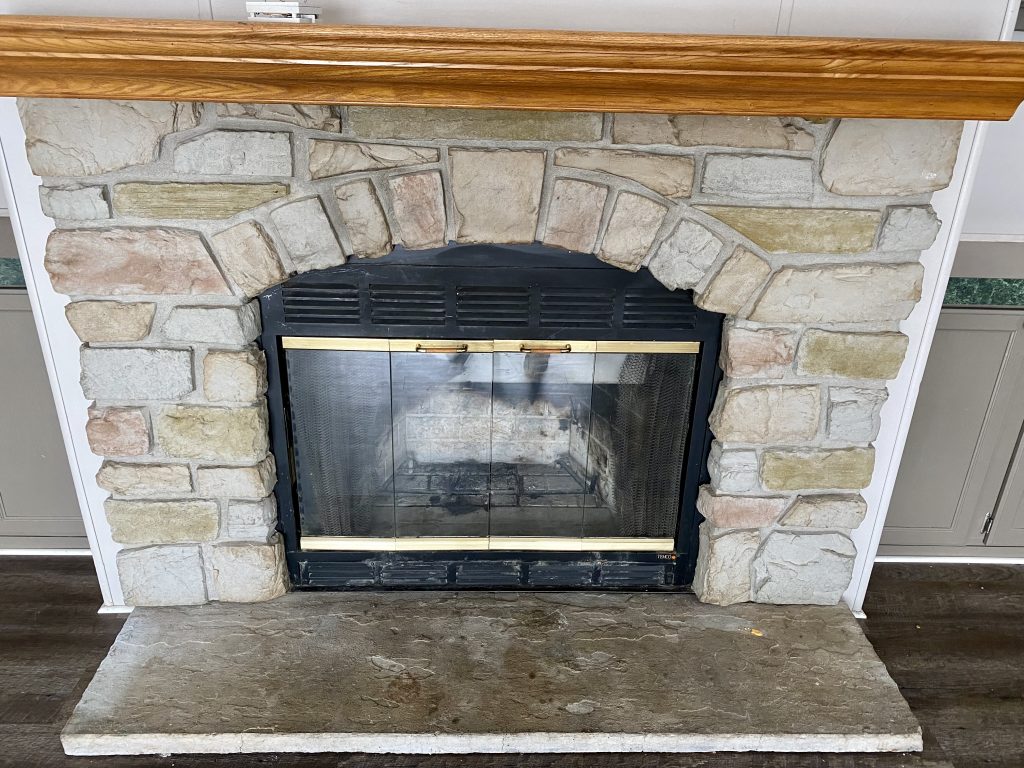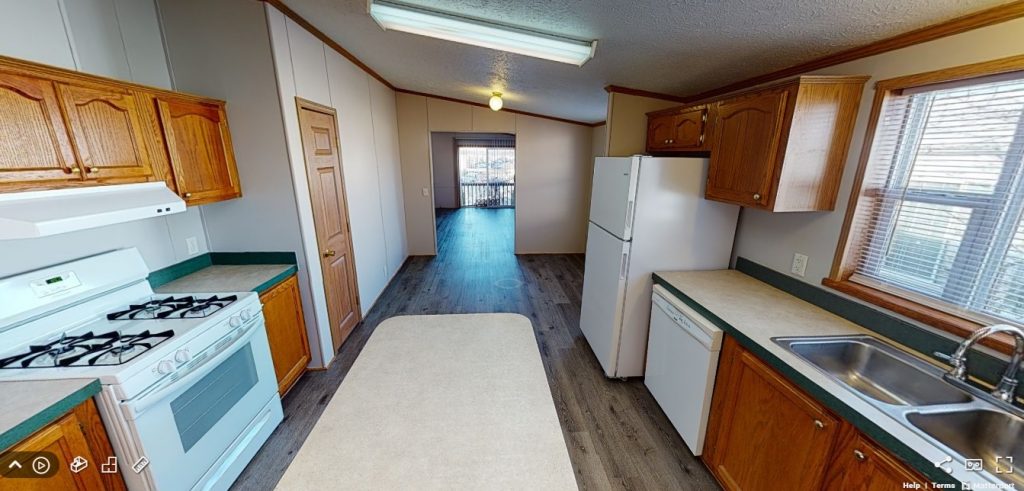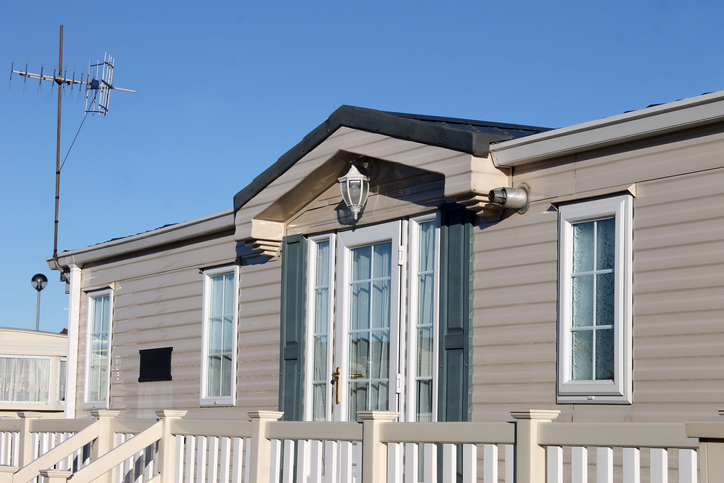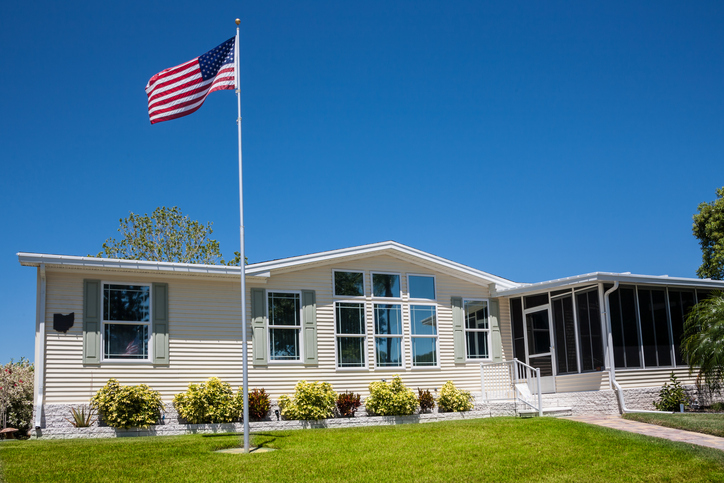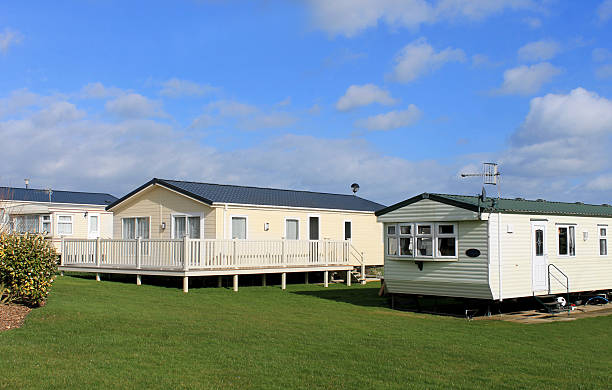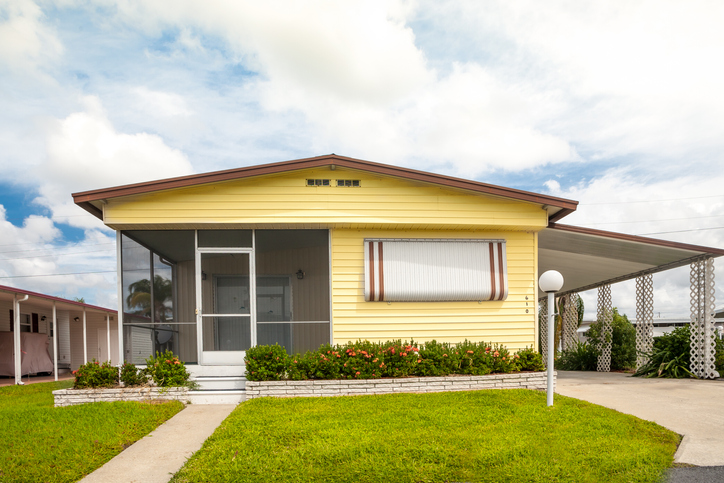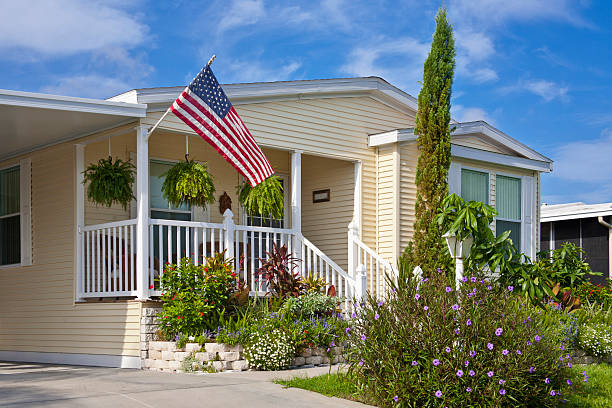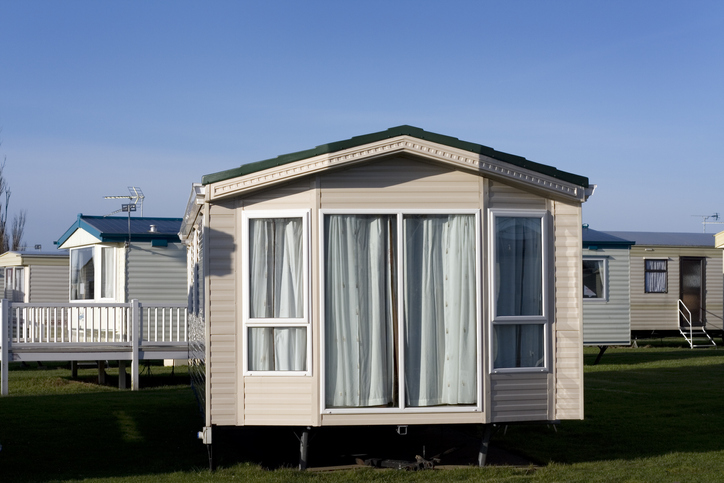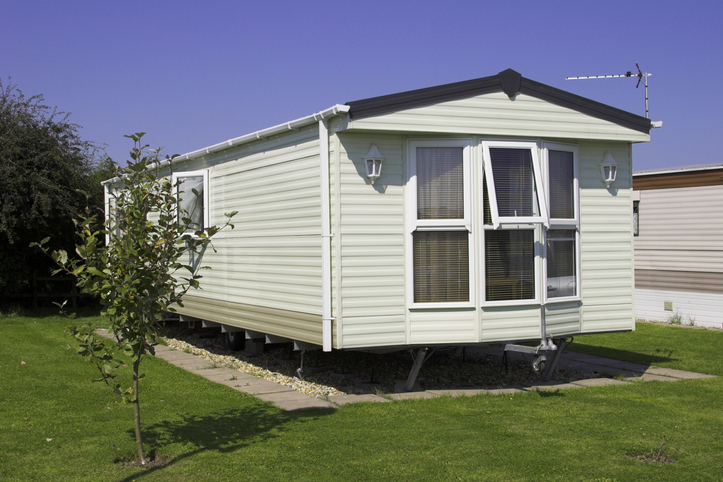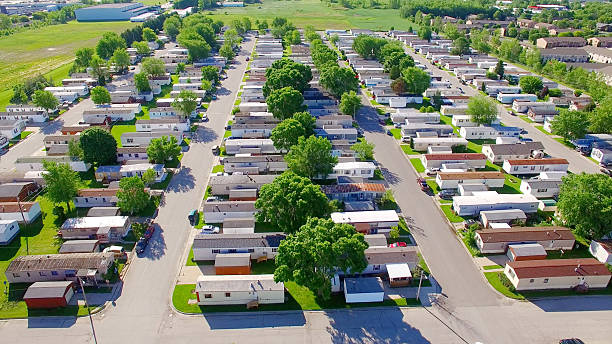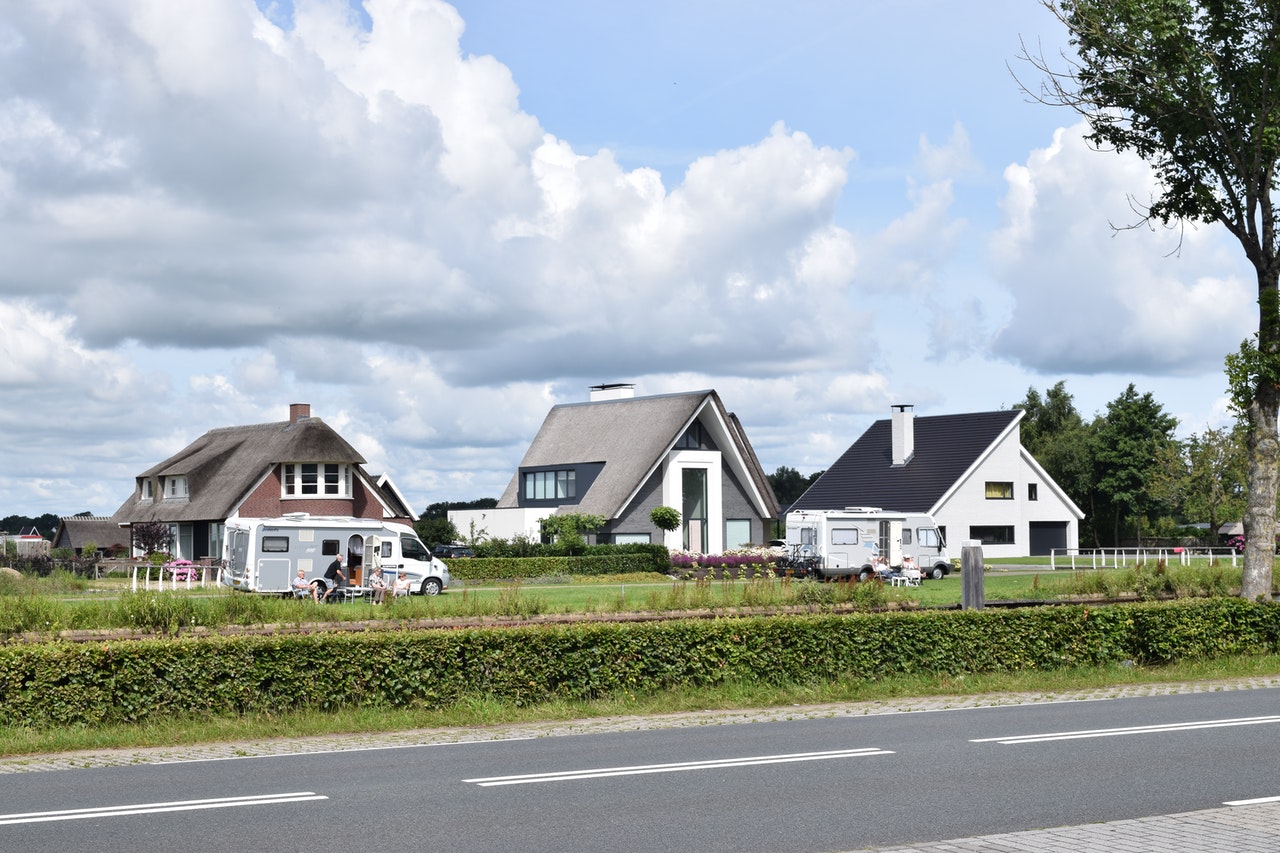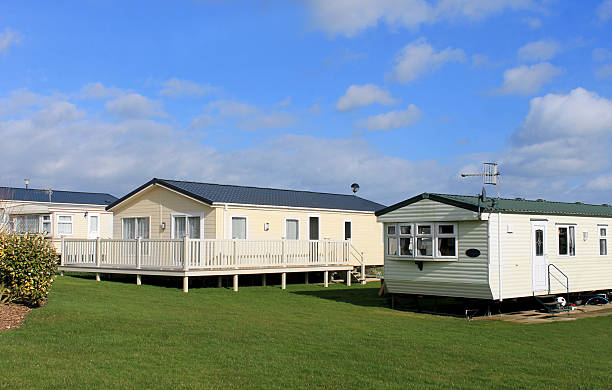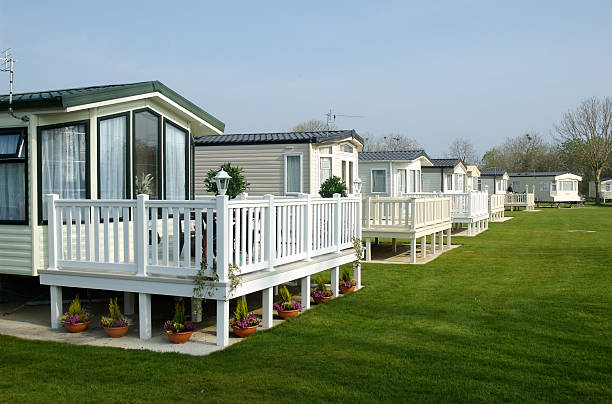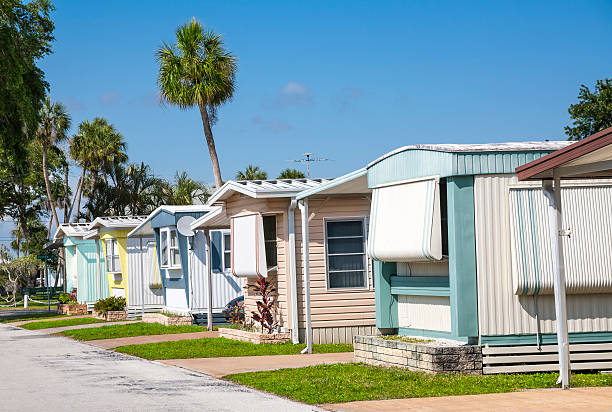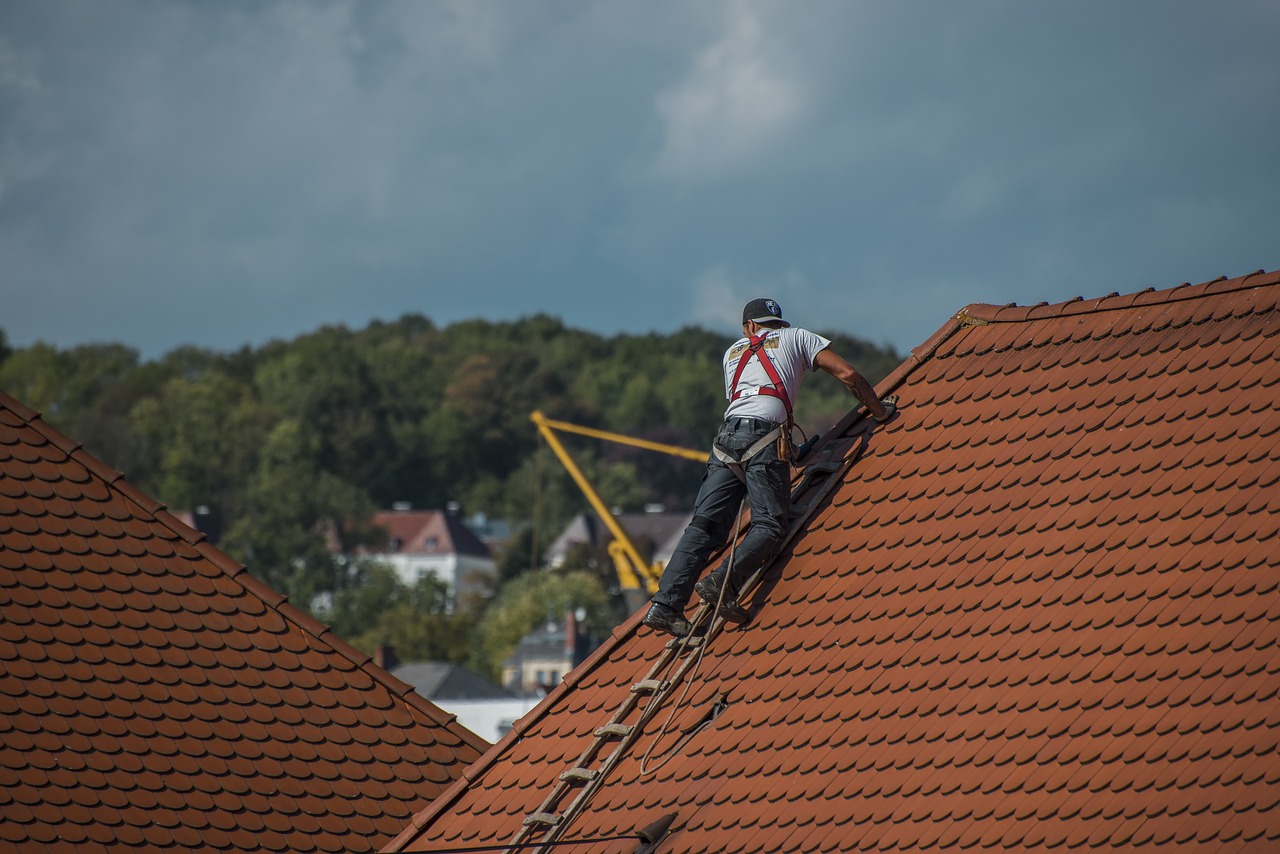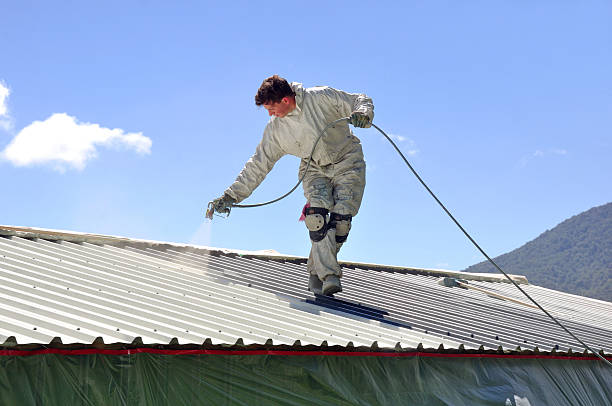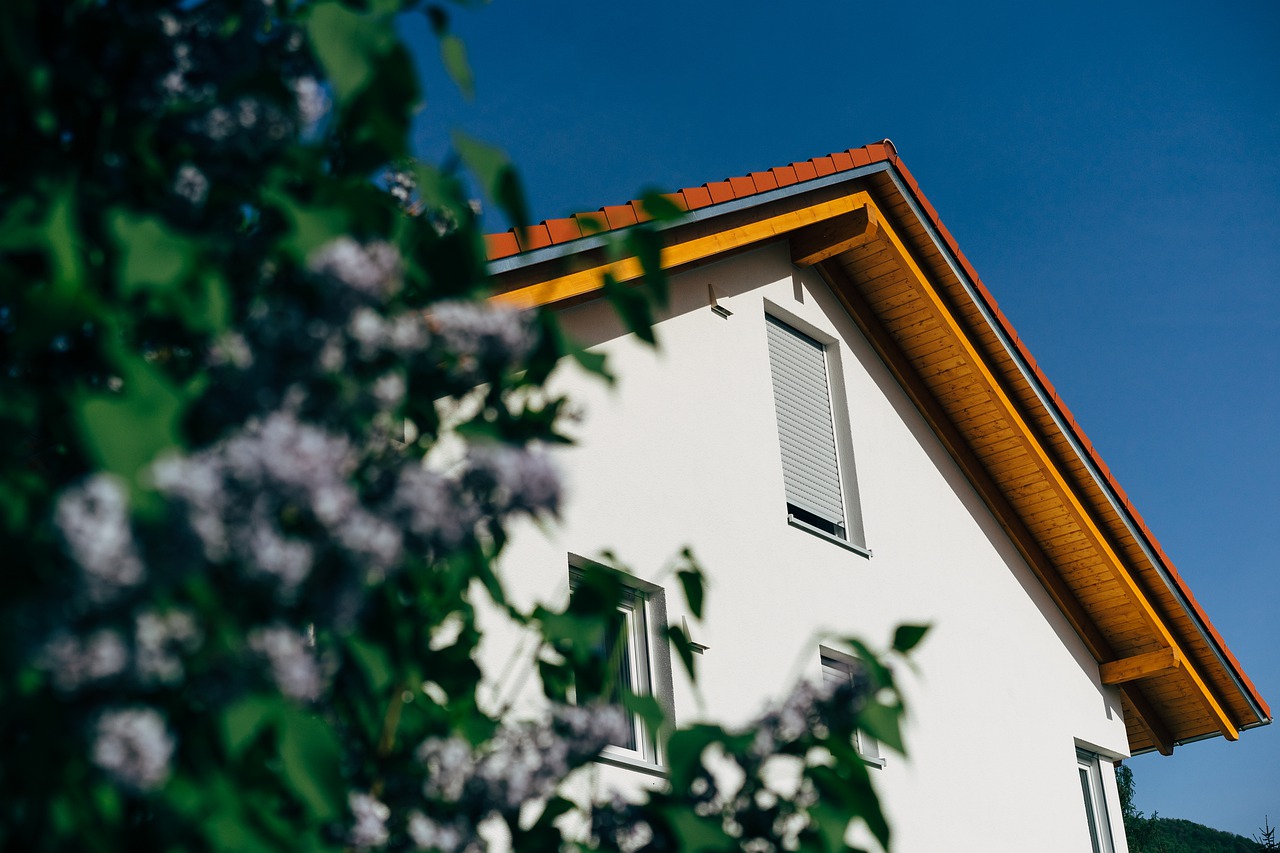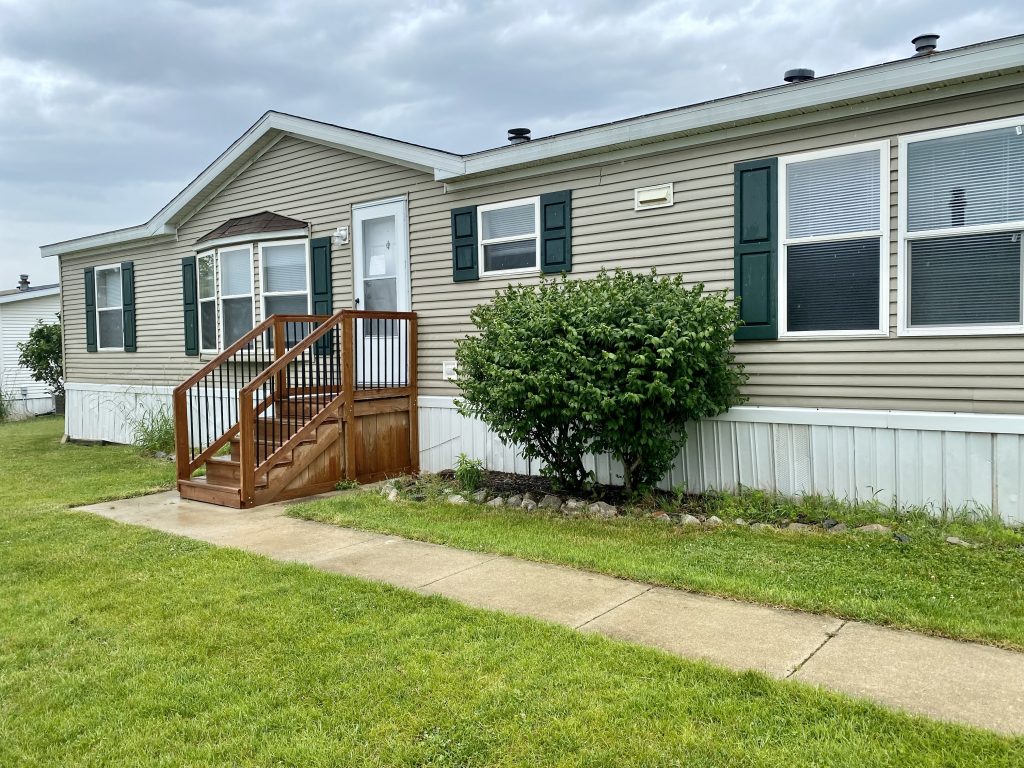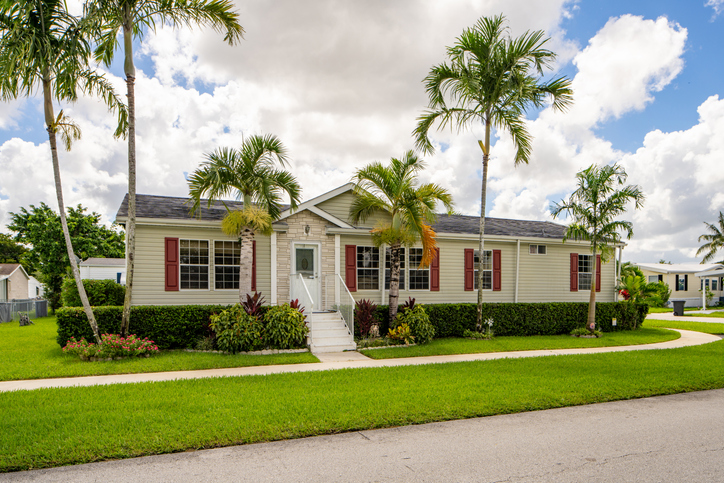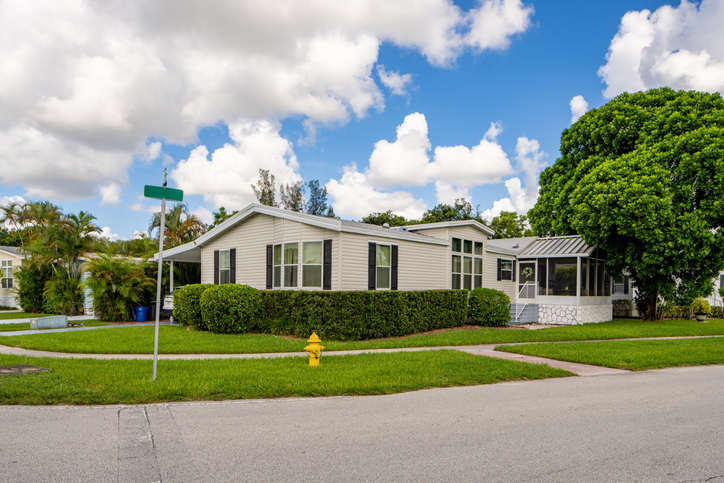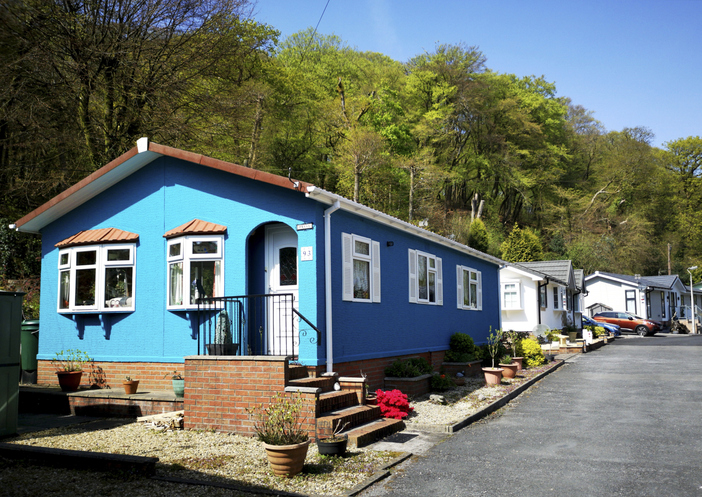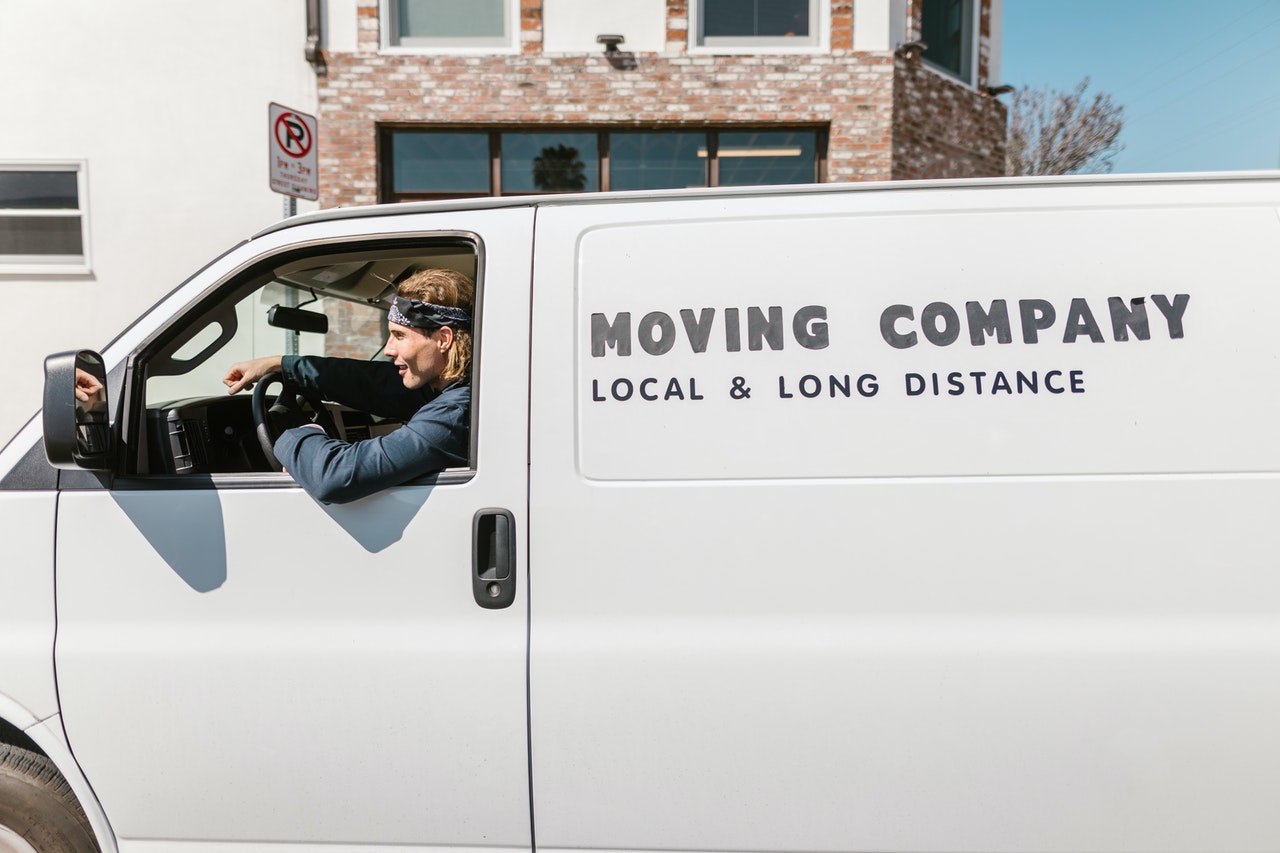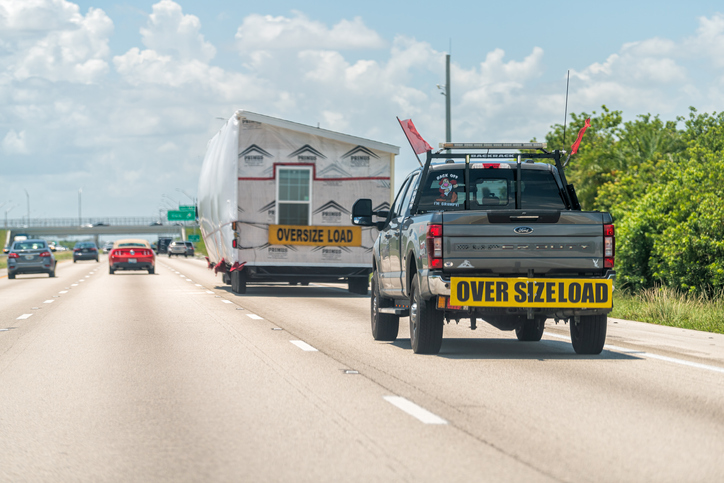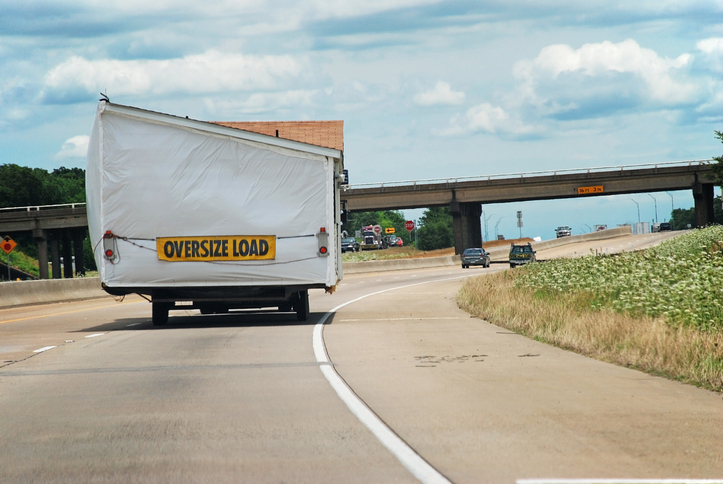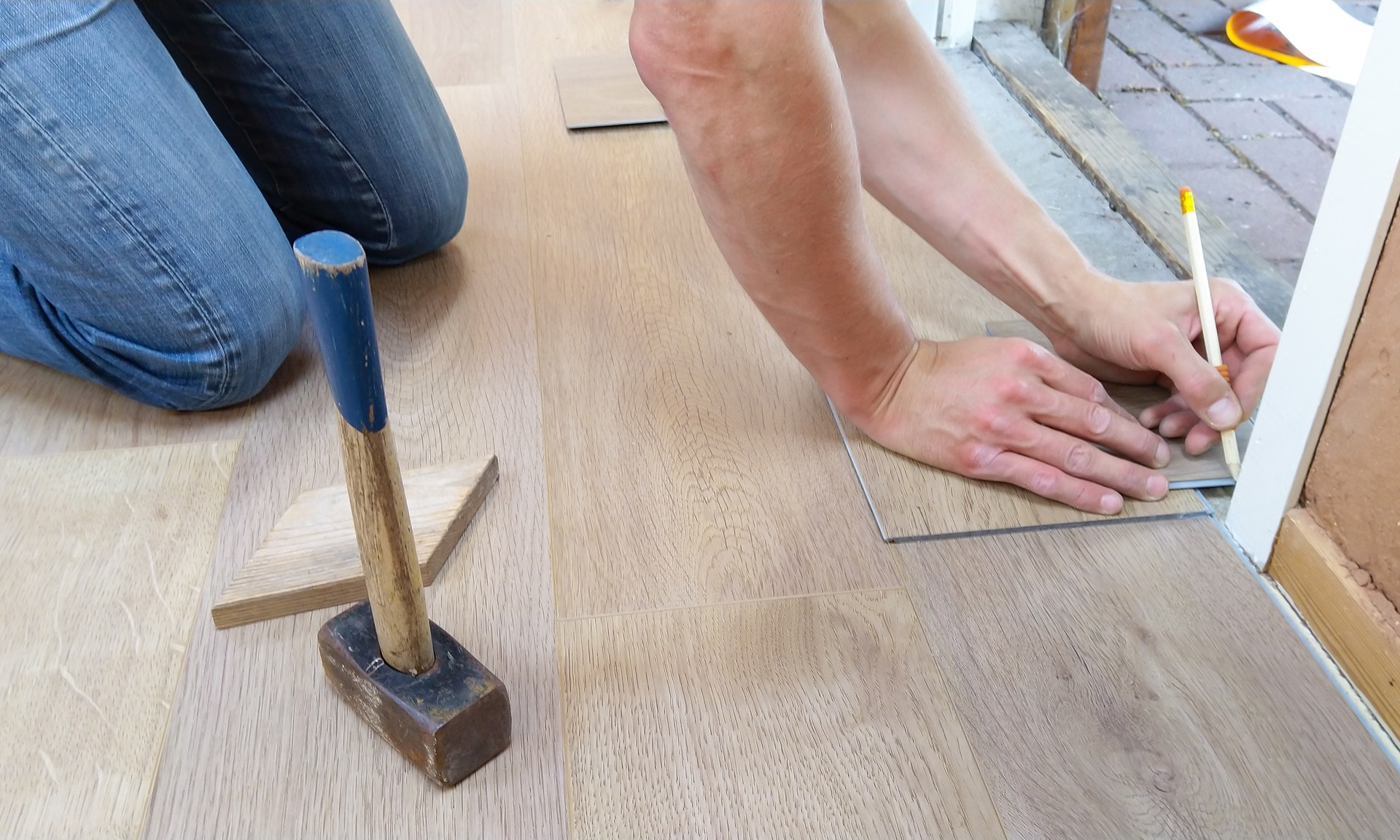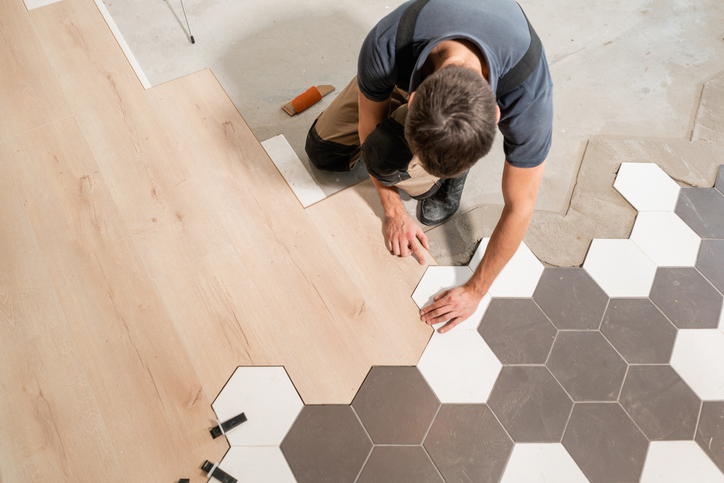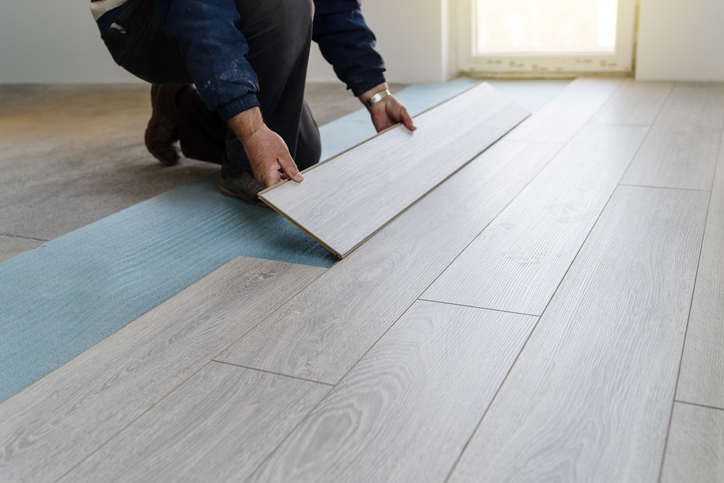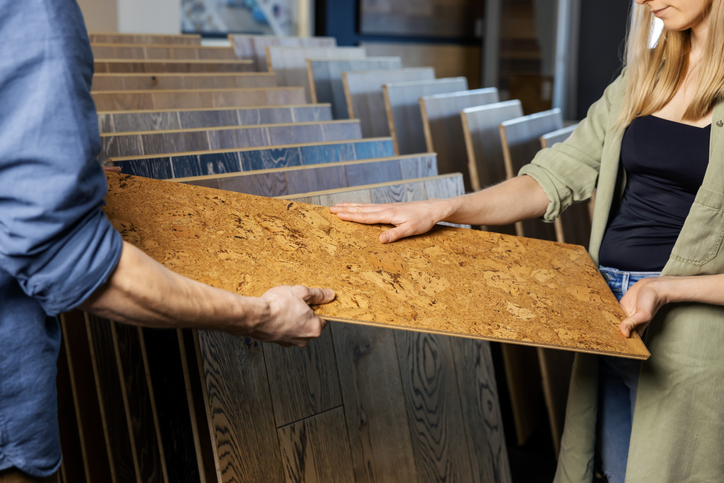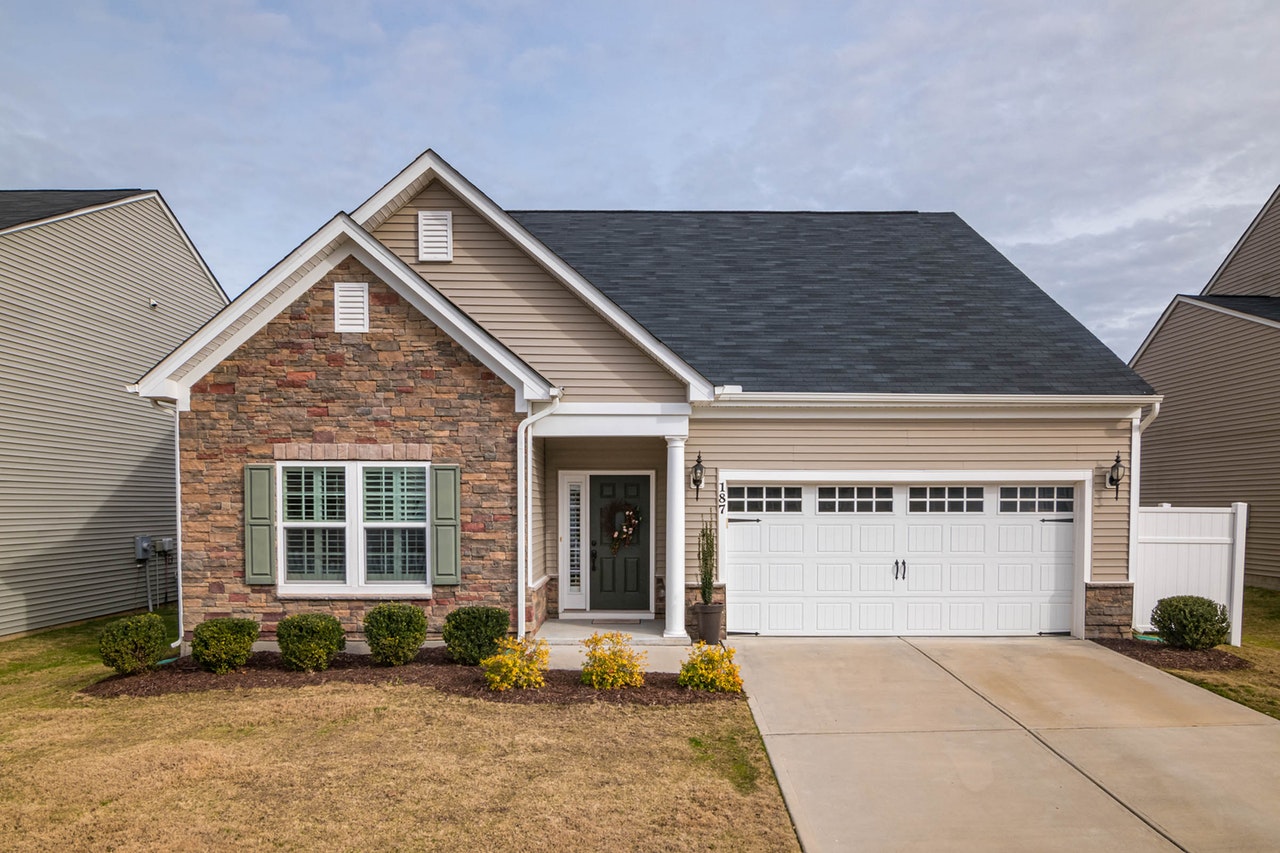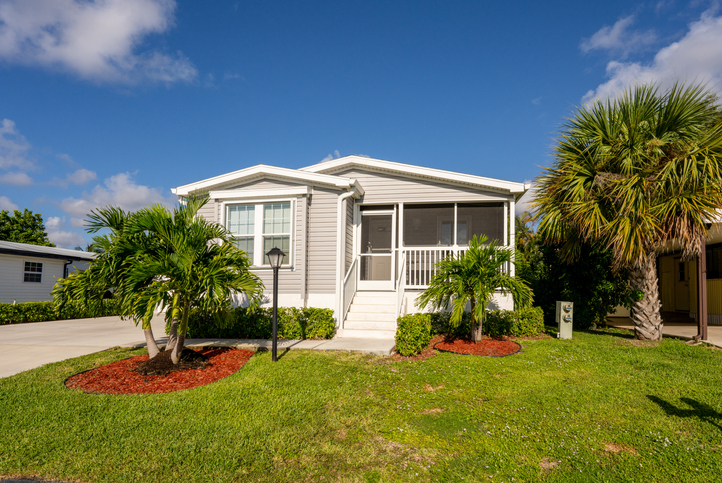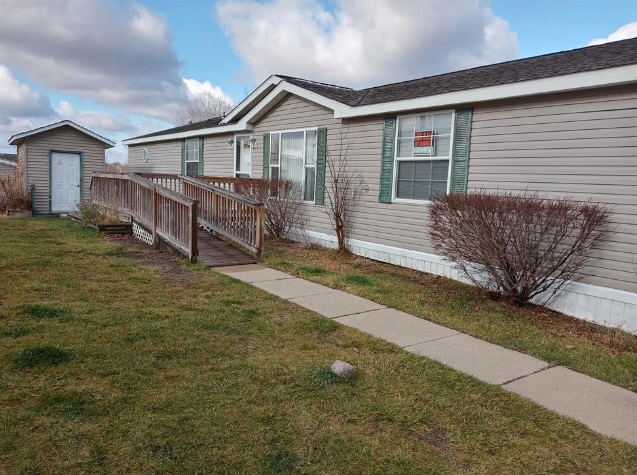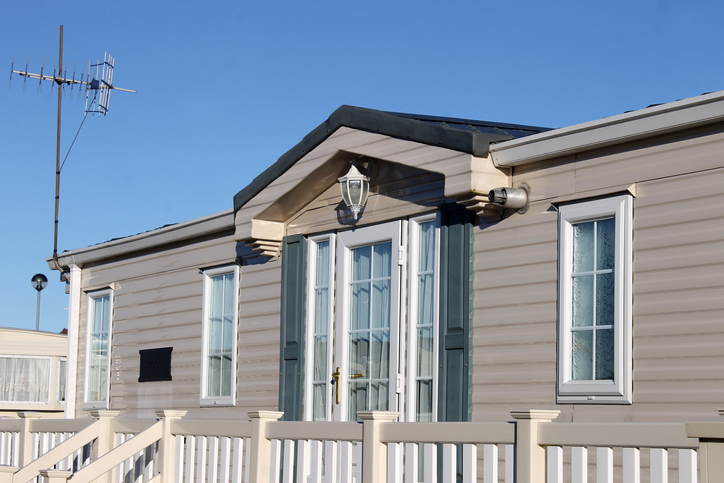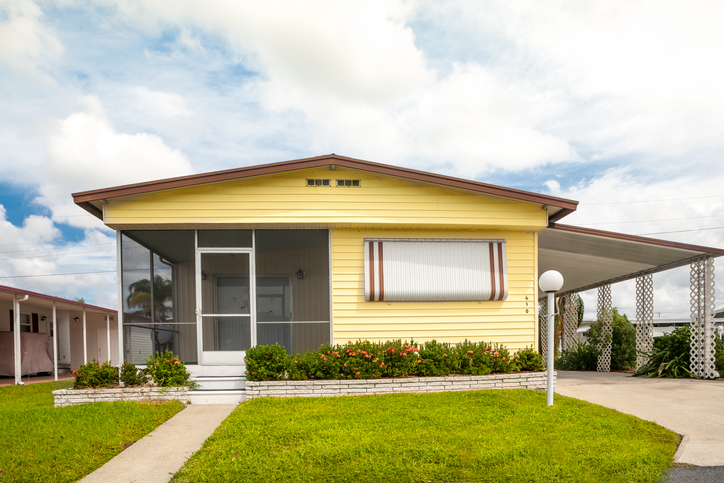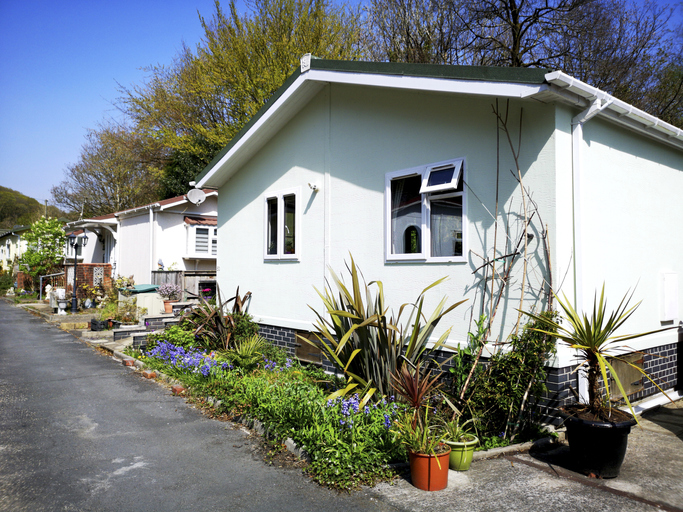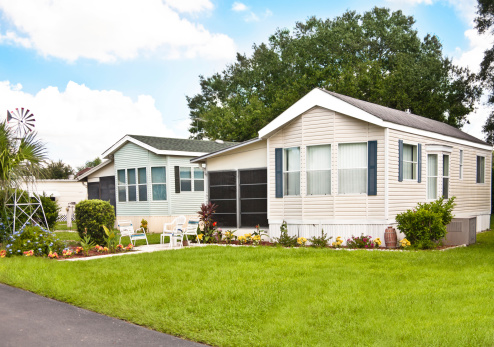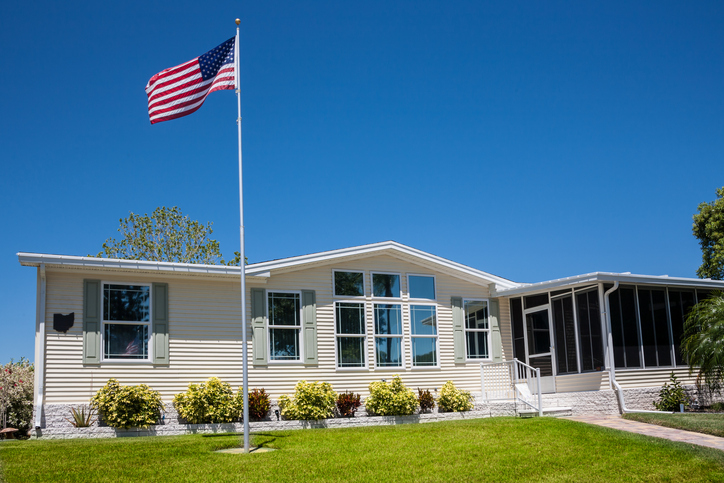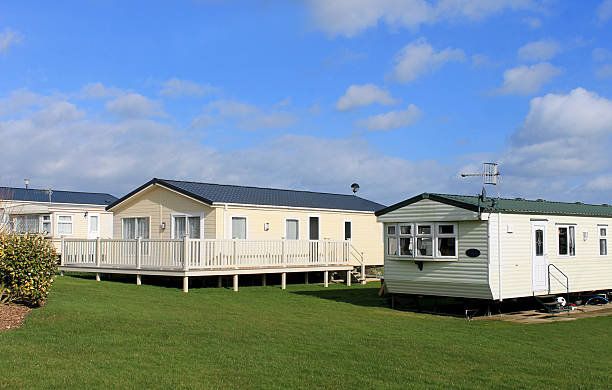4 years ago
·
Justin Becker ·
Comments Off on What are the Disadvantages of Living in a Mobile Home?
With the increasing cost of real estate and the advantages of owning one’s own home, many people are now seriously thinking of buying a mobile home. Also known as manufactured homes or trailers, mobile homes are a great alternative to stick-built homes in many ways.
What is a Mobile Home?
A mobile home is a residential structure that is not constructed directly on a plot of land like a stick–built house. Instead, there are factories for mobile homes that make the whole structure and place it on a trailer chassis. The final destination of the home transportation will usually be a mobile home park, sometimes also known as a trailer park.
There will also be park rules to follow when you live in a manufactured home community. If someone can’t afford to finance a mobile home yet, they can always look at ways how to find a mobile home for rent.
Why Get a Mobile Home?
While it may not be a traditional home, there are many reasons why a mobile home could be the best option for someone who wants to own property. A traditional home or stick-built home might be out of reach for the common man, simply due to financial reasons. Instead of getting crushed under huge personal property loans or property taxes, buying a mobile home might be a good way to begin owning personal property.
While many people do live in mobile homes and pay rent to the mobile home community, there are pros and cons to buying a mobile home. Then there is mobile home living, which is another matter; along with paying a lot rent, we have to consider every nuance of the matter.
Potential mobile home owners need to know the ups and downs of having their own mobile home. Real estate agents and mobile park owners may only talk about the many advantages of mobile home living. However, it is important to be aware of what living in a manufactured home entails – this requires looking at both the perks and the lows of mobile home ownership and mobile home park living.
Disadvantages of Living in a Mobile Home
Before buying a mobile home, here are just a few of the disadvantages you should consider:
1. Value Depreciation
One main disadvantage of living in a mobile home is that its value will start depreciating the second it leaves the factory. On the other hand, a stick-built home will usually appreciate in overall value as time goes by. This is because a stick-built home usually stands on one’s own land.
Can a mobile home owner experience increased property value?
If you are not dependent on mobile home parks and own the land your mobile home stands on, the overall property will likely increase in value. However, this is because of the land’s value, not the home.
Why do Mobile Homes Depreciate Over Time?
There are a few reasons why the value of mobile homes depreciates over time. One of the main factors is that mobile homes are considered personal property. They are not like “real property,” which we may define as land and anything permanently attached to it.
Anything that just sits on land and can be moved without damage is not in the real property classification. It is in the personal property category, even though moving mobile homes is quite difficult. Learn how much does it cost to move a mobile home here.
Can Mobile Homes Become Personal Property?
The good news is that a mobile home owner just might be able to convert their mobile home into real property. They can then enjoy the perks that come with this kind of home ownership. Not only will they be paying a lower median price overall, but they will also have a permanent residence as their investment.
Undeniable Lower Costs
At the end of the day, however, there is no denying that the cost of mobile homes is slightly lower than that of traditional houses. The average price could be around half that of a regular home. When the housing market is a tight one, even the value depreciation issues are not too considerable. You have a proper investment on hand, which can be your best friend in the midst of a housing crisis.
Mobile homes may also stay stable in value if they receive proper maintenance. Here are a few tips on how to maintain a mobile home.
2. Expensive Loans, Higher Interest
Since mobile homes are considered personal property, it is more difficult and expensive to finance them. If you go the traditional way with a mortgage loan, it might not even get approved since mobile homes are not considered permanent structures.
Even if the structures were placed on concrete blocks on the land, the vast majority of lenders will still have doubts about approving traditional loans for those living in a mobile home.
Chattel Loans
Many times, it can be hard for someone to even come up with the down payment for a mobile home. In such cases, if they really want to get the buying process started, they may have to apply for a chattel mobile home financing. Chattel loans are personal property loans that have shorter terms and higher interest rates, but again, the higher interest rates make this option quite unrealistic.
A Lower Initial Cost
We should not ignore the fact that mobile homes simply cost less than stick–built homes. Even a large double-wide mobile home from double-wide mobile home dealers in Michigan will probably be a great cost-effective alternative to a traditional home. While mobile homes usually come in one unit, there may be the option to add on new modules when you need to expand. The result might be just one square foot or so away from a regular home.
3. Downsides of Living in Mobile Home Communities
One of the main reasons why some might hesitate to check out mobile homes as a living option is the stigma that is still on them. Living in a mobile home usually means being in a mobile home park or community. Some kids and adults may still feel ashamed letting their friends know that they live in a trailer park. Certain people might also show prejudice against those who live in mobile homes.
Fortunately, the prejudice and negativity surrounding mobile homes are gradually fading away. The quality of mobile homes is also increasing, which will hopefully dash away the myth of trailers being for people who have low incomes or even a criminal tendency.
Landlords and Rules
Even if you own the actual house, there will usually be a landlord to whom you have to pay a lot rent to. There are also several rules to follow, which may lead to a restricted feeling.
Mobile Community Perks
On the other hand, there is no doubt that mobile home communities do have a lot of perks. The atmosphere there can be very family-oriented, with senior citizens enjoying their retired life and all the families knowing one another. If you find a community that really speaks to you, you can begin planning out your move, including choosing movers and a car shipping company (but keep in mind, most of these cannot move the mobile homes themselves). Here are just a few things that everyone should know about mobile home living.
4. A Smaller Space
On average, a mobile is around 20% smaller than a traditional home. Make sure to look up some buying tips before purchasing single-wide mobile homes, but such living will usually mean staying within a space of 15 by 72 feet.
Why Choose a Smaller Living Space?
Even with mobile homes being smaller, they are still a popular option as one can move in almost at once. From there on, we can expand and add on modules as required. As long as the amount of your leased-land allows it, there are a lot of manufacturers who can customize various floor plans and offer a variety of their own to choose from.
5. A Temporary Foundation
Finally, the temporary foundation of a mobile home may also be a risk for the people living in it. If a natural disaster strikes, such as a hurricane, huge thunderstorm, or earthquake, a mobile home is more vulnerable to damage. The occupants inside will also not be very safe; they won’t even have a basement or cellar to escape to in case of an emergency. Be sure you know the wind zone rating for mobile homes before committing to one.
High Building Standards
On the other hand, we also have to consider the building of modern mobile homes today. They are usually constructed and put together in controlled environments, which means that their quality standards are very high. As long as you are not in a very high risk zone for certain natural disasters, a quality mobile home could be all the shelter you need from the weather elements outside.
The Takeaway
Every major decision comes with its ups and downs, especially when we are talking about major investments like buying a home. For buyers in the U.S., one major decision might lie between “should I build a house or buy a mobile home or finance a traditional, stick-built house.”
While each of these choices also has pros and cons, it does seem like mobile homes have a definite advantage. Even the downsides are not without perks, so it is probably worth considering this option seriously. The housing market is a tough one these days; it is best to act quickly and get that mobile home as soon as possible!
Read more
4 years ago
·
Justin Becker ·
Comments Off on Grand Rapids Mobile Home Parks: Top 5
Mobile home parks in Grand Rapids, MI, are often an attractive choice for housing options. These parks in Grand Rapids, MI, are typically located in nice neighborhoods, offer a variety of amenities, and provide residents with the peace of mind that they will be able to stay put.
Mobile home parks in Grand Rapids, MI usually come with a lower cost of living, being more affordable than apartments or condos. In addition, most mobile home parks come with notable features, such as a basketball court, clubhouse, swimming pool, and fitness center.
As a result, everyone is looking for the perfect mobile home park in Grand Rapids, MI that comes with their desired amenities. However, physically searching for an all-age community in Grand Rapids, MI on your own might be overwhelming, so we are here to help.
Grand Rapids Mobile Home Parks
Grand Rapids, MI is one of the most welcoming mobile home parks for home dwellers. When looking for an all-age community or a mobile home park in Grand Rapids, MI you will have a lot of options. For this reason, picking the perfect all-age community in Grand Rapids, MI to settle in can be overwhelming.
If you are looking for a new home in an any age community in Grand Rapids, MI, you will be interested in learning about the top communities in Grand Rapids, MI. So, what are some of the best communities that you may want to consider? Let’s find out!
Cedar Springs Mobile Estates
If you are wondering how to find a mobile home for rent (any age community) where luxury meets affordability, look no further than Cedar Springs Mobile Estates. This mobile home park, which is an all-age community, is owned and run by a family who takes pleasure in providing a comfortable and safe living environment for all residents.
The best part about the Cedar Springs Mobile Estates community is that it welcomes people of all ages, meaning it is not age-restricted. With that said, Cedar Springs Mobile Estates is ready to welcome you at any time, no matter if you are starting a new family or downsizing to a mobile home from your current home.
Cedar Spring Mobile Estate’s location is one quality that makes it a desirable all-age community to live in. Cedar Springs restaurants, Cedar Springs, MI shopping, and healthcare facilities will all be within close reach. Furthermore, this all-age community is about 20 minutes from Grand Rapids, MI.
Finding the best school is a top priority when looking for an all-age community to settle in with your family. As a result, the Cedar Springs Mobile Estate community is located within a short distance of several Cedar Springs schools, which are rated some of Michigan’s best-performing institutes.
Besides being an all-age community, it also offers a wide range of house plans. For example, you can choose from single-wide mobile homes with two bedrooms and one bathroom, to what is a double-wide manufactured home with four bedrooms and two bathrooms.
If you are looking for mobile homes for rent in Cedar Springs, MI here, you can expect to pay between $900 and $1,200 per month, which is far below the average rent in Grand Rapids, Michigan. In addition, if you wish to be a homeowner, the Cedar Springs Mobile Estates community provides new and used mobile homes for sale in Cedar Springs, MI at very affordable rates.
Cedar Springs Mobile Estate is a pet-friendly all-age community that welcomes your four-legged pals. However, expect to encounter some restrictions, particularly when it comes to dog breeds, so be sure to review the mobile home park pet policy for all details.
Kentwood Mobile Home Park
If you are considering some of the best places to live in Kent County, MI, Kentwood Mobile Home Community is another fantastic option. The good news is that Kentwood is another all-age community meaning it welcomes people of all ages.
Kentwood is a big city and is mobile home friendly. With its proximity to the interstate and many large retailers for shopping and dining, Kentwood is ideal for those who desire to live in a diverse and large city, but prefer a quieter, more residential atmosphere.
This all-age community is located at 6122 Division Ave S, Grand Rapids. However, their leasing office is at Green Meadows, 6148 Division, Kentwood, MI. The Kentwood community in Grand Rapids, MI offers mobile homes with two bedrooms and one bathroom, along with a variety of shared amenities.
Here are some features that you will find in the Kentwood Mobile Home Community mobile homes, in Grand Rapids, MI:
● Washer/Dryer Hookup
● Air Conditioning
● Cable Ready
● Dishwasher
● Stove
● Refrigerator
● Resident Portal
Kentwood’s mobile home park in Grand Rapids, MI (an all-age community) is another pet-friendly neighborhood, just like Cedar Springs Mobile Estates. They allow both dogs and cats, with residents paying a monthly rent of $25 per pet, which is fairly comparable to other mobile home parks in the area. Furthermore, expect to pay a $250 one-time pet fee when you join. The money is needed to cover the cost of typical wear and tear, as well as any damages that your pet may cause, such as urine stains on the wall or carpets, and scratches on the floor. In addition, expect to encounter some pet restrictions in this all-age community, such as a two-pet limit, which is typical in most all-age communities.
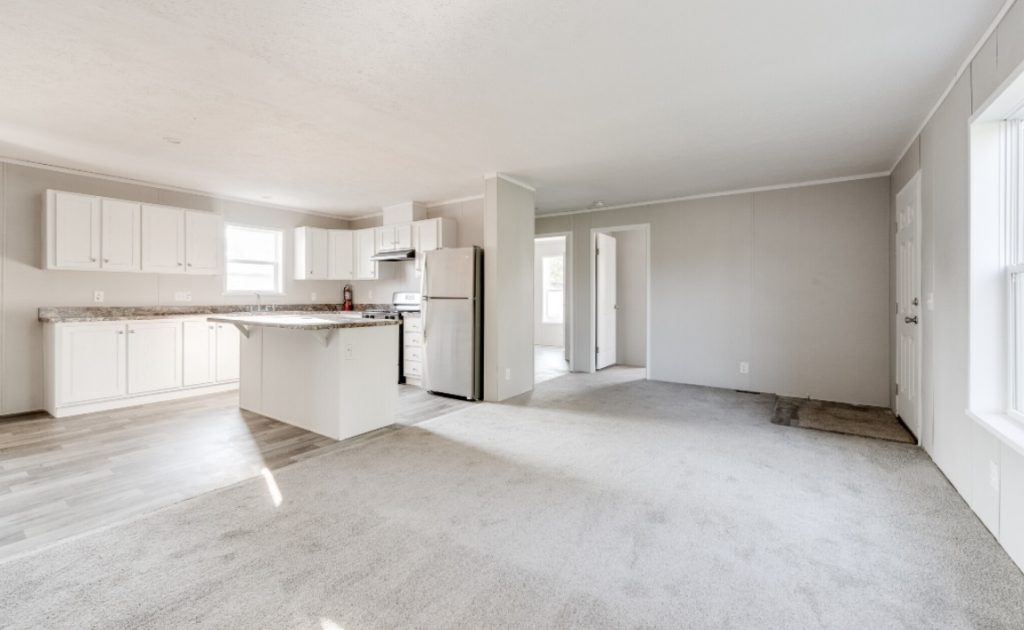
Kentwood Mobile Home Park’s strategic location in Grand Rapids, MI is another outstanding feature that makes it an ideal all-age community to reside in. For example, this community in Grand Rapids, MI is about 17 minutes from Davenport University, and is also near Aquinas College and Calvin College. In addition, this all-age community mobile home park is also close to Gerald R. Ford International, which is only 20 minutes away.
Generally, accessibility to most of the amenities in this all-age community is only within 20 minutes or a short driving distance. For example, it will take only 13 minutes to drive to the Grand Rapids Public Museum.
Alpine Meadows
The Alpine Meadows community is located at 3800 NW Fruit Ridge Ave in North Grand Rapids, MI, in the greater Grand Rapids area. This all-age community has plenty of attractive amenities, such as convenient on-site parking options, fireplaces, and a community picnic area. A clubhouse, pool, basketball court, grill, and breakfast/coffee concierge are among the other community amenities in this Grand Rapids area community.
This all-age community/mobile home park offers homes with three bedrooms and two bathrooms. Contact the leasing office to learn more about mobile home living in this area.
In addition, Alpine Meadows, an all-age community, is strategically positioned in terms of transportation so that you will have easy access to public transit. The good news is that restaurants, supermarkets, stores, and other local businesses are all within a short driving distance of the community. The amenities don’t stop there; this all-age community is also closer to open fields, as well as a spacious area with playgrounds and nature trails.
Another feature that makes this all-age community attractive to many residents is its proximity to downtown Grand Rapids, MI. You will also be glad to hear that Grand Rapids Community College is only 14 minutes away from the Alpine Meadows community.
South Village Mobile Home Park
Southwood Village is situated at 440 60th Street SE, Grand Rapids, MI. This all-age community, in Grand Rapids, MI, provides people with a taste of a calm and picturesque neighborhood, and comes with increased convenience.
Nestled in the heart of Grand Rapids, MI, Southwood Village offers residents a convenient location that is only minutes from public transportation, shopping malls, and an array of wonderful dining options. With that said, your new home in this all-age community in Grand Rapids, MI will be a place you can feel happy and at peace with your surroundings.
The South Village neighborhood residents have access to amenities, including a swimming pool, basketball court, and two playgrounds for kids. Furthermore, this all-age community in Grand Rapids, MI frequently hosts community events for its residents. So you can anticipate having a lot of fun during community events while interacting with your neighbors as you form new friendships.
South Village Mobile Home Park in Grand Rapids, MI is an all-age community, which means that anyone of any age is welcome to live there. Furthermore, this all-age community in Grand Rapids, MI is pet-friendly, so feel free to bring your four-legged companion. Also, the average mobile home park lot rent in South Village Mobile Home Park is $486 per month.
Holiday Estates Manufactured Home Community
Holiday Estates wraps up our top five mobile home parks in Grand Rapids, MI. It is located at 440 68th St. S.W., Grand Rapids, MI. Like the other parks mentioned, Holiday Estates is an all-age community, so you won’t have to worry about age restrictions when looking for a place to call home here.
Typically, Holiday Estates is the place to go if you want high-quality homes that are reasonably priced. With a wide variety of floor plans to choose from, you are sure to find the perfect property for you at an affordable rate.
Located in the heart of Grand Rapids, MI, this all-age community offers residents a quiet and serene living experience. With a welcoming atmosphere, it is an oasis for those who want to live in the city, but desire peace and tranquility. Once you visit here, it is easy to see why this all-age community is such an attractive destination for many residents looking to settle down.
Honorable Mentions
Grand Village
Grand Village is located at 6500 S. Division, Grand Rapids, MI. This neighborhood caters to senior citizens (55+ community) and offers many amenities, such as assisted living and memory care.
This mobile home park in Grand Rapids, MI is for those who want to retire in style. The property includes residential style mobile homes, a shopping center, and more. This community appeals to active seniors who want a bustling environment, with activities like fitness classes, billiards, game rooms, and more on offer.
It is managed by Sun Communities, Inc., a fully-integrated real estate and resort company managing resorts, vacation ownership properties, and residential communities nationwide.
Leonard Gardens
This mobile home park is located at 4524 Leonard St NW, Grand Rapids, MI. The abundance of common amenities available to homeowners in Leonard Gardens in Grand Rapids, MI is a standout aspect of this community.
Residents of this all-age community/mobile home park in Grand Rapids, MI enjoy simple landscaping ideas for mobile homes, planned community events, a clubhouse, and more. Leonard Gardens is an all-age community, so you are welcome whether you are a young couple starting a family or an elderly duo looking to retire.
Final Thought
Grand Rapids, MI is a lovely city that offers many amenities and features to fulfill all of your needs and desires. One such amenity is the wide variety of mobile home parks in the area. These mobile home parks in Grand Rapids, MI provide you with enriching experiences for all family members, including children.
In addition, these parks are growing rapidly and offer an eclectic mix of homes for all budgets. As a result, before deciding, visit many mobile home parks in Grand Rapids, MI and examine their amenities to choose the one that best suits your preferences.
Read more
4 years ago
·
Justin Becker ·
Comments Off on What is Lot Rent for a Mobile Home?
When it comes to mobile homes, there is a lot one needs to learn and unlearn. Mobile homes are quite different from your traditional homes in many ways. So, a potential mobile home owner or renter has to do their homework before they take any steps.
One of the first things to know about mobile homes is that they are either on your own lot (if you are a property owner) or on a mobile home park lot. If it is the latter, you will have to pay a lot rent on top of other costs. However, the benefits of living in mobile home parks may be worth the additional cost.
The lot rent cost and mobile home park charges can be a little difficult to understand at first. To this end, we have compiled a guide for those who live in manufactured home communities and have to pay rent for their mobile home lot.
Defining a Mobile Home Lot
Those who are not too familiar with mobile homes or real estate may get confused by the concept of lot rent. Basically, mobile home lot rent is different from outright renting mobile homes.
A mobile home lot is a piece of land that belongs to the current park owner. The person who owns the mobile home pays site rent or lot rent to the park owner. This means that the one paying lot rent owns not the land, but the mobile home that stands on it.
The lot rent itself might go to the mobile home park owner or the company that owns the mobile home park. The mobile home units on the land may be for rent as well.
What is Lot Rent?
So, what exactly does this lot rent entail? What is the rental or lease contract like? How much can we expect a lot lease payment to be and what policies do most mobile home parks have regarding lot rent?
Answering all of these questions means that we have to take a look at the various points of a lease agreement for a lot rent. Let’s start now:
What is in the Lot Rent Lease?
When someone wants to rent a mobile home lot, they have to sign a lease agreement. This states that the mobile home owner agrees to the terms of the landlord.
The landlord here might be one individual; namely, the property owner or park owner where the mobile home sits. Some mobile home parks have multiple park owners, so the agreement, in this case, will have to mention all of them.
The other items that this agreement includes are:
● Lease duration
● Amount of monthly rent
● Rules of the mobile home park or manufactured home community
● Respective responsibilities of the park owners and renters
● Rights of park owner and renter
If the mobile home owner does not honor the clauses of the agreement, they might get a fine or even be evicted from the mobile home park. That is right, they can face eviction even if they own the place.
This is just one reason why it is essential to read the whole document before signing anything, especially a lease agreement. Make sure you have some flexible terms and won’t get a penalty for missing just one lot lease payment.
Do Lot Rents Cover Property Taxes as well?
For most states, property tax is inevitable on any kind of residential place, regardless of whether the residents own it or not. However, we are talking about a mobile home here, which usually falls under the category of personal property, not real property, unless you also own the lot it stands on.
Factors Influencing Taxes on a Mobile Home
Mobile home taxes may vary a lot depending on the state you are in, the home’s monetary value, and its condition. Other factors include:
● Tax capacity
● Property tax classification
● Market value tax rate
● Tax credits
A mobile home owner will usually owe taxes to the DMV, with a rate of around 1-2%. In Utah, for instance, a mobile home or manufactured home will classify under the trailer coach category.
Overall, a park owner can expect to pay property tax on the land they rent out, as well as the property tax on a mobile home. Usually, this is the landlord’s responsibility, unless otherwise specified in the lease agreement.
In a nutshell, paying mobile home lot rent probably means that you will not have to pay additional property taxes. Again, read and understand all agreements thoroughly before signing.
Benefits of Mobile Home Lot Rent
Mobile home lot rents are quite beneficial for those living in mobile home parks. This way, whether one owns a mobile home or not, they are still part of the manufactured home community.
When you pay lot rent, you get to access park amenities, benefit from any extra utilities, and stay on a piece of land for some time without worrying.
With all of this being said, the exact benefits will depend on the terms of the mobile park community owner. For some, the lot rent covers amenities and utilities, such as gas, water, electricity, laundry services, and so on. For others, the lot rent will cover the actual lot where the mobile home stands, nothing more. Again, understand what you are getting into before signing any lease agreement.
What are the Rates of Lot Rents for an Average Mobile Home Park?
The rates for mobile home lot rent will vary according to the state, the park quality, the locations, etc. Before you go into any negotiations, look and see what the fair market rates in the area are like. Get quotes from several different parks before making a decision or signing any contracts.
In some cases, you may consider the option of learning how to rent-to-own a mobile home.
What Affects the Rates for Mobile Home Lot Rent?
The rates for mobile home lot rent can vary a lot. Here are just a few factors to keep in mind regarding these rental rates. This way, you know what to expect:
- The Lot Size: Naturally, larger lots will have higher lot rent; it might be worth it for those who want space for outside grilling, a large mobile home, or just some room for pets and kids to play.
- Maintenance: The mobile home park may provide some maintenance services, including lawn care, repairs, etc.; more services mean more lot rent.
- Utilities: A mobile home park may cover utilities in the lot rent; these may include garbage services, cable services, water, electricity, etc.
- Area or Location: A mobile home park in a desirable neighborhood will also have high lot rent rates; the area itself may be expensive or have beautiful surroundings.
- Amenities on Offer: These include laundry rooms, a community center, swimming pool, etc.; the more there are on offer, the higher the lot rent goes.
How Stable is a Mobile Home Lot Rent?
One of the main things a mobile home dweller may worry about is whether a new park owner may come in and raise the lot rent.
Consider this situation: the current park owner sells the mobile home park. The new owner might want to raise the lot rent in order to recover their costs.
The good news is that some states may deem this practice illegal, unless mentioned in a lease contract. In some areas, the new owner will be responsible for maintaining the lease with the same terms for as long as it lasts.
This is why the original owner of a mobile home park needs to negotiate lease takeover with a potential new owner. Alternatively, they can also seek a release with the tenants in the mobile home park.
There are a few areas and states where the tenants do not have such rights. In such cases, they might face eviction or having to pay higher lot rents.
Do not take your landlord’s (old or new) word for it, though. Get some legal advice and see if your options can be based on the lease agreement, the area in question, and the local laws. If the laws are not in your favor, you may want to if buying vs. renting a mobile home is better for you.
What Lot Rent Covers
Before you sign or finalize anything, clearly understand what you have to pay for. Here are some aspects that a mobile home lot rent usually covers:
- A piece of land to place your manufactured home on
- Might include the mobile home rent as well (depends on the park)
- Access to the amenities and maintenance (the staff can guide you about the exact offerings)
- Swimming pool
- Playgrounds or play area
- Community center
- Laundry rooms with washers and dryers
What Lot Rent Does Not Cover
The exact terms of your lot rent agreement may vary from one mobile home park to another. However, you will want to double-check the following items and usually be prepared to handle them yourself (or ask for an addition in the lease agreement):
- Taxes: While property taxes may not be your headache, there will be taxes on the mobile home.
- Insurance: Lot rent does not cover insurance; if the state has extreme weather, getting relevant insurance could be a major expense. Be sure to know the wind zone ratings for mobile homes.
The Takeaway
Lot rent is inevitable for most mobile home owners, especially if they do not have land of their own. If you are thinking about living in a mobile home park, be sure to consider all the factors involved before signing a lease.
Remember, a mobile home lot lease can be good for several years, so make sure you are getting the best deal possible. Perhaps, this might also be a good point to consider whether mobile homes are worth buying or not.
Read more
4 years ago
·
Justin Becker ·
Comments Off on What is the Best Roof Coating for Mobile Homes?
When it comes to mobile homes, there is a lot to take care of. Whether you are planning to purchase a mobile home in the near future or already own one, it is a good idea to know about its various parts. One of the most important parts is ofcourse the roof, specifically the coating materials of mobile home roofs.
The issues of a mobile home or manufactured home are somewhat different than your regular stick-built houses. You have to think about what type of flooring is best for mobile homes, what kind of ventilation system to use, and mobile home maintenance tips to best maintain it for the long run.
The Importance of Focusing on Mobile Home Roof Coating
Mobile home roofs require a bit more care and maintenance than you may think. Yes, those wood subfloors will also need some effort on your part, but your mobile home roof is your literal shelter. Without the proper steps and precautions, the entire roof might cave in or deteriorate quickly over a short period. With that said, there are several options to choose for your mobile home roof coating.
If spending a lot on roof repair or fines after a roof inspection doesn’t sound appealing, it’s best to do your research right away. Re-installing your mobile home roof may only take a few hours, but it can save you a lot of hassle and cash down the road.
What is the Best Roof Coating for Mobile Homes?
So, what will be the best roof coating for your mobile home roof? Some roofing contractors may claim to do all kinds of jobs; flat roofing, shingle roofs, metal roofs, and so on. However, do they really know about roof coatings for manufactured homes?
If you are ready to find out more about the roofs of mobile homes and wondering how long does a roof last on a manufactured home, you are on the right track. While your mobile home roof might have a few characteristics in common with traditional roofs, there are some essential differences. Mobile homes tend to have roof coatings instead of shingles or asphalt, so this is where you need to start.
Some mobile home roof coatings may be more cost-effective, while others are how to make a mobile home more energy-efficient (energy savings). Since we are talking about the entire surface over your head, let’s now discuss the various types of roof coatings and decide which one is best for any manufactured home.
What Exactly are Mobile Home Roof Coatings?
Roof coatings help to protect a mobile home roof. While standard homes may also have them, there are some marked differences. If you are unsure about the kind of roof coating to use, you can consult a team of roofing professionals for more details.
First of all, a manufactured home roof will have a lower pitch than that of traditional houses. Some of them have flat roofs, which make them more vulnerable to extreme weather, especially heavy rains. The flatness means that excess water can’t automatically run off. With the water pooling, you get problems, like dampness, leaks, etc.
Second, you have to consider that mobile homes are not your usual brick and mortar material. The roof coatings have to protect fiber-glass instead of sturdy layered constructions. With age, a mobile home roof might leak and require replacement. While taking note of how to maintain a mobile home, you should take special care when it comes to the roof coatings, as well as the quality of the ceiling materials.
Precautions to Take with Your Mobile Home Roof
Outright replacing or repairing the entire surface of your mobile home roof could be quite difficult and expensive. The good news is that it is not that hard to replace a part of it or apply more roof coating where required.
Nearby tree branches and the wind could also cause some issues with your roof surface. Make sure to check the wind zone ratings for mobile homes before you decide to have a mobile home in any particular area. Here are a few more precautions a mobile home owner can take to minimize the frequency and need of roof coat repairs:
- The first step is to clean the manufactured home roof frequently; this will preserve the old coating as long as possible
- Take extra care to clean the manufactured home roof after heavy winds or rainfall
- Remove any water as soon as you can; consider having extra paneling on the roof seams or at least a high-quality seal coating
- Installing a couple of gutters may also help the water to run off instead of pooling on a manufactured home roof and ruining the roof coatings
What Kind of Mobile Home Roof Coatings Can You Apply?
If you want to choose the best roof coating for your mobile home, take a look at each option first. Consider the pros and cons before making any final decision, as this new coating should last a long time and require a decent investment. Here are some of the most common roof coating options now:
- Aluminum Coating
Aluminum roof coating is among the cheaper options for any mobile home. This coating includes aluminum fibers, asphalt, and petroleum. It may result in a metal roof, but it is excellent for warmer climates. The surface is reflective, which keeps the mobile home cool on the inside.
This kind of roof coating is also long-lasting and convenient. It can secure your mobile home’s roof in about 24 hours.
- Silicone Coating
You may also use a roof coating that contains silicone. If you want to fill cracks in your roof cement, silicone is an effective adhesive and coating solution for this purpose. It will also even out any dents and other irregularities.
Silicone lasts a lot longer than many other materials for roof coating, so be sure to consider it seriously. Options like the Kool Seal rubberized silicone roof coating will also prevent water from pooling on your manufactured home.
- Acrylic Coating
An acrylic roof coating is great for hot climates, providing extra protection from the sun. It is also good for helping a mobile home’s roof contract or expand according to the weather.
If you are leaning towards an acrylic roof coating for your manufactured homes, do look at elastomeric coating. These are proactive coatings that you can apply either inside or outside a building. While some elastomeric coatings are water-based, make sure to use an acrylic-based one for your mobile home. This roof coating is in the form of a latex paint. Once they are dry, they will be transparent, yet flexible and stretchable.
An elastomeric coating is great for protecting your manufactured home from moisture. However, make sure not to use it on any logs or wooden surfaces. If you do, even a little missed spot could let in some moisture and not let it dry. This then leads to mold, decay, and other forms of damage.
- Self-Adhesive Coating
The special thing about this coating is that it comes in rolls of films with all the protective material already on them. You do not need any brush to apply it, but it is still quite durable and easy to install. These features make this roof coating especially popular. The films might be of aluminum foil with an asphalt layer or some other combination, but no matter which type you choose, go for something that offers water protection as well as insulation.
How to Apply a Mobile Home Roof Coating
Different materials for your mobile home roof may have different features. You will have to choose by looking at its application method, maintenance requirements, and the area your mobile home is in.
You should know the ins and outs of applying roof coating materials. This might save you a few bucks for the installation. Even if you get some help with the project, it helps to know just what to expect. Let us now have a look at how to apply different kinds of roof coating to your mobile home:
- Applying Aluminum Coating
For most manufacturers, this type of coating will fully form around 24 hours after application. This will get you a cost-effective, heat-diverting, and durable roof coating.
When you purchase this coating, make sure to mention that it is for a mobile home. The coating for regular house roofs is different.
- Applying Silicone Coating
Silicone provides insulation, which is best for colder climates. Its smooth surface will also reflect sunlight, so it is suitable for the warmer weather as well. In a nutshell, it won’t crack in the cold nor melt in the heat.
Silicone coating requires no specific surface preparation like metal primers. It will fill up the cracks and dents, therefore you can just start by following the instructions from the manufacturer.
- Applying Acrylic Coating
This kind of coating might require a spray application. You will first have to prepare the surface of the mobile home roof. Fix up any major deterioration, such as large cracks, and consider applying a metal primer with a paint roller.
This kind of coating will usually apply in a similar way to repair paint. You will have to give the roof a few layers so that the coating remains durable and effective.
- Applying Self–Adhesive Coating
Applying this kind of coating is not difficult, but you do have to take certain steps. Once you complete these, there is no need to use a brush. All you have to do is stick the coating over the mobile home roof.
The steps for applying self-adhesive coating are important. You should also follow them before applying any other type of coating as well. This will enable you to get the best result possible. Let’s have a look at these now.
Steps for DIY Mobile Home Roof Coating Installation
Here are the precautions and steps to take before applying any kind of roof coating to your mobile home:
- Check the weather forecasts and don’t start the application if it looks like rain
- Give yourself enough time to allow for drying time as well
- Inspect the roof and clear away any blockages or dirt
- Remove the old coating using sandpaper, if required
- Conduct any minor repair, such as tightening screws, etc.
- Dilute bleach and use it to clear up mildew or other unwanted growths
- Apply metal primer over the whole surface using a brush and leave it to dry
- Prepare the coating mixture and begin painting the roof seams before moving on to the main area
The Takeaway
A damaged or leaking mobile home roof can render the whole structure unlivable. To stave off expensive damage, make sure that your roof coating is on point. Just in case, make sure to repair the mobile home’s roof coating after every two years. This way, you will be able to focus on some simple landscaping ideas for mobile homes and other projects without worrying about the roof.
The best roof coating for any mobile home will depend on the kind of area it is in and what issues it will face. While silicone coatings may be best for both hot and cold weather, aluminum ones may be better for someone who lives in a warm area and is looking to cut costs. Take a good look at your mobile home today and see which option is best for your needs!
Read more
4 years ago
·
Justin Becker ·
Comments Off on Can You Buy a Mobile Home with a VA Loan?
There are many misconceptions about VA credit. Too often, people think that because their credit isn’t good enough for a conventional loan, they can’t get VA credit. In reality, the VA does not look at your credit score when determining whether or not you can qualify for a home loan.
Even more so, people are often confused about what type of home they can buy with VA credit. You may be surprised to find out that mobile or modular homes are eligible for the program.
Suppose you have been considering buying a trailer home. In that case, it’s important to know that the VA does require a qualified appraiser be used in order to determine the value of the buyer’s home to ensure that it meets minimum standards before issuing credit.
Can You Buy a Mobile Home with a VA Loan?
The answer is YES! You can buy a trailer home using VA mortgages.
The VA credit is a government-backed program that provides mobile home loans to qualified service veterans and spouses.
If you qualify for a VA home loan, you may be able to buy a manufactured or factory-built home. Some of the benefits of buying a trailer home with a VA credit is that it requires a downpayment of only five percent and has an 80 percent VA-guaranteed credit.
With that said, let’s get right in and talk about VA loans for manufactured homes and if you should use them.
What is a VA Loan?
A VA loan is a loan guaranteed by the Department of Veterans Affairs. They are popular among those who served in the military because they can offer benefits that are not available with traditional credit, such as a low down payment requirement and potential eligibility for cash-out refinancing.
When it comes to buying a home, VA home mortgages are always a good option to consider. With that said, what is not so clear-cut is how much money you can borrow with a VA credit.
Many variables come into play when deciding what you can afford, which is why there is no one-size-fits-all answer for the question ‘can you buy a manufactured home with a VA credit?’
What is a Mobile Home?
A manufactured or mobile home is a type of home that is built in a factory, then is built in sections or modules once transported to it’s site. This type of home can be easily transported and placed on a permanent foundation. You can buy it with an FHA loan, a VA credit, or even a conventional loan.
The phrases “mobile homes” and “manufactured homes” are commonly used interchangeably when it comes to prefabricated homes. With that said, per the Department of Housing and Urban Development (HUD code for mobile homes), mobile homes are those built prior to 1976, while manufactured homes are those developed after 1976.
When compared to their conventional counterparts, site-built homes, mobile and manufactured homes are certainly more cost-effective. As a result, buying a trailer home rather than a regular home can save you up to 30% on your housing costs.
How Do VA Loans Work?
VA lending differs from standard real estate financing in a few ways. Private lenders are the ones that offer these loans backed by the Department of Veterans Affairs (VA). With that said, the VA does not provide loans to borrowers directly.
VA Loan Requirements for a Manufactured Home
A VA credit is just like any other type of credit. It has requirements that the borrower must meet and the VA approved lenders need to verify those requirements before providing a loan.
With that said, it is important to know what the qualifications are before taking the first step in getting your VA credit.
What factors determine your eligibility for a VA credit? Before you qualify for a VA credit, establish whether you meet the following standards:
- Your mobile or manufactured home must be permanently attached to the land
- You must intend to keep the trailer home as your primary dwelling and not to establish another primary residence; that said, the house should not be used as a vacation or seasonal residence
- You must be a member of the military community
- The trailer home must meet all the building code and zoning code requirements
- The home must be classified and taxed as real property, not personal property
You can use a VA credit to finance the mobile/modular home purchase if you own the land. However, you can, as well, use the VA credit to finance both the home and the land itself.
Challenges with a Securing VA Mortgage
Many lenders are hesitant to issue VA mobile home mortgages for a variety of reasons, including declining house values and an increased chance of homeowners defaulting on their loans. As a result, borrowers have found it challenging to find manufactured home financing in recent years, which has left many seeking a private loan or buying a regular home.
Although a private lender may be found, this would be the equivalent of a short-term construction loan. If this is the case, refinancing with VA credit may be required once the house is built and set.
What are the VA Terms?
The majority of VA manufactured home loans have a 30-year maximum duration. Expect a 20-year and 32-day payback schedule for single-wide mobile homes and a 23-year and 32-day repayment plan for double-wide mobile homes. The maximum repayment schedule is 25 years and 32 days if the credit is to purchase a home and land.
Advantages of Using VA Mortgages to Buy a Manufactured Home
Let’s review the positives of obtaining a VA loan to purchase a prefab home:
Low-Interest Rates
The VA loan program is one of the most valuable resources for military personnel looking to buy a home. The VA offers low-interest rates, which can lower the monthly payments on your mortgage and even save you money in the long run.
No Down Payment Needed
VA purchase loans are the best option for service members who have not saved much money. You can use this type of manufactured home loan to purchase a home without putting any money down.
It can also be used to refinance loans as long as your credit score is good enough. Find out more about what credit score is needed to buy a mobile home here.
A borrower’s down payment for a VA credit is lower than it is for a FHA loan or conventional loan.. A downpayment of 3.5% is required for an FHA loan, whereas a conventional loan requires a downpayment of 5%. Find out if you can buy a mobile home with a FHA loan here.
No Private Mortgage Insurance Needed
VA mortgages do not require private mortgage insurance (PMI). This translates to significantly lower monthly payments for VA mortgages compared to their counterparts. Additionally, it is the only loan that assures mobile home buyers that 100% ownership of the home will always be theirs.
Relaxed Credit Requirements
Traditional loans have strict credit standards, and borrowers are frequently required to meet a minimum credit level in order to be approved. This is not the case with VA mortgages, however, which have lenient credit standards, making it easier for veterans to get a loan without worrying about their credit score.
No Prepayment Penalties
While paying off a home loan before it matures can help homeowners save on interest payments, it can also be disadvantageous in certain cases, meaning more out of pocket costs for doing so. A local lender often enforces a prepayment penalty as a way to recoup some money. However, VA mortgages do not charge prepayment penalties. As a result, you can pay off your loan at any time without the worry of paying any additional fees.
Disadvantages of Using VA Mortgages to Buy a Manufactured Home
Although VA mortgages have several benefits, there are some factors you need to know before committing to one.
No Using VA Mortgages for Rental Properties
VA mortgages are for mobile homes for sale, not mobile homes for rent, because the VA does not consider a rental property to be a primary residence. So, if you need chattel mobile home financing for a rental property, the VA will not be an option.
The One-Time VA Funding Fee
The one-time fee, which ranges from 0.5% to 3%, is paid to the Department of Veteran Affairs (a government agency). On the other hand, the majority of people pay about 2.3%, on average.
Top VA Home Loan Lenders
Per the Mortgage Research Center, the following are some of the best approved VA lenders:
- Veterans United Home Loans
- Quicken Loans
- USAA Bank
- PenFed Credit Union
Each of these are considered an Equal Housing Lender.
Fair Housing Act
Lenders are prohibited from discriminating against borrowers based on their:
- Race
- Color
- Religion
- National Origin
- Sex
- Handicap
- Familial Status
Tips for Shopping VA Mortgages
Securing a loan can be a difficult and time-consuming process. As you go through the application, it’s important to know what questions to ask and which documents to provide. The more accurate information you have at the start, the less likely you will be turned down for a loan later on.
Compare Interest Rates for Mobile Homes
Financing for manufactured houses can be complicated, with rates and costs that differ drastically from single-family homes. It is critical to understand the ins and outs of mortgages before obtaining or refinancing a prefabricated home using VA home loans.
Before applying for a loan, make sure you receive all of the VA home finance bids together and evaluate them. When it comes to acquiring the best quote, online comparison tools or calculators can be helpful.
Consult with Loan Officers
This is definitely important if you don’t know how VA lending works. Many different factors will affect the maximum term of your home loan. This is why you need to talk with your loan officer/home loan specialist to find out all the details about the VA program.
Gather Quotes on the Same Day
With a fixed-rate loan, your interest rate will not change. However, if you have a variable-rate loan, the interest rate can change from day to day. To avoid surprises and get the best rates possible, it is wise to gather all quotes on the same day, if possible.
Ask for Written Confirmation of the Rate Lock
If you are settling on a loan, it is helpful to request the rate confirmation in writing. This way, there is proof if any disputes arise about what was agreed upon.
For example, suppose you have been quoted a 3.2% interest rate and the VA approved lender suddenly changes that to 3.5%. In that case, your written confirmation letter may serve as evidence that the original agreed-upon rate was lower.
Frequently Asked Questions about VA Mortgages
Can I sell my home and get another VA credit?
Buying new homes with VA mortgages requires the homeowner first to sell the house they currently live in and pay off the loan in full. This way, you will be entitled to borrow and finance a new trailer home.
Can two veterans combine their VA Mortgages?
If the two are responsible for the credit, it is possible.
Can I use my deceased father’s VA credit?
The simple answer is NO! The children of a deceased veteran are not eligible for VA mortgages.
Could I use a VA loan to both purchase a piece of property and have a house built on it?
Ideally yes, but it’s going to be challenging to find a VA lender offering zero down payment on construction loans.
Does the VA allow a cash out refinance loan?
Yes, it is possible so long as you meet the eligibility criteria of VA lending.
Final Thought
VA mortgages are government-backed loans that help veterans, military service members, and their families purchase a home. With that said, these loans require the applicant to meet certain qualifications. If you are eligible for a VA credit, you can receive benefits such as no down payment requirement and competitive interest rates on your credit loan.
Read more
4 years ago
·
Justin Becker ·
Comments Off on How to Find a Mobile Home for Rent
Mobile homes, otherwise known as manufactured homes, are available in a variety of layouts and sizes, and they have become a very popular housing alternative, thanks to being cost-effective, when compared to other options.
For your information, modern mobile homes for rent, and even mobile homes for sale, are available with various quality features, including, but not limited to, granite countertops, stainless steel appliances, and huge walk-in closets.
With that said, there is the challenge, like anything else, of finding the mobile home for rent that meets all of yours and your family’s needs. The good news is that there are different avenues through which you can easily get a reliable and quality mobile home for rent.
In this article, we help you with tips on how to obtain that perfect mobile home for rent.
How to Find a Mobile Home for Rent
Finding a mobile home for rent can be easy if you know where to look. Below are tips for how to find the best mobile home deal:
Consult People You’re Close To
One of the best ways of finding a mobile home for rent is to approach people that you know on a personal level and trust. These people may be aware of the best manufactured housing deals in and around the neighborhood.
They might also be aware of people willing to sublease their property, however, in the case of a sublease, ensure that the landlord is aware. A landlord might kick you out of the mobile home after you have moved once they realize that a sublease arrangement was made without their approval.
Consider Rental Listing Websites
Rental listing sites offer some of the easiest ways to find a good manufactured housing deal. You can employ the main search feature to find a manufactured home of your preference. Use the filters to narrow down your mobile home search even further by available amenities, lease length, or if pets are allowed, just to name a few.
Rental listing sites are among the most convenient ways of getting a manufactured housing unit for your renting needs. They even offer virtual 3D mobile home tours for you to view.
Below are some websites that we recommend:
Approach a Real Estate Agent
No one has more knowledge about buying and selling mobile homes than a real estate agent. They can assist you in getting the best manufactured home at a cost-effective rate.
Real estate agents will do all of the leg work for you, and they may have the inside scoop on some off-market mobile homes for rent or sale listings that you would not find anywhere else.
With that said, their services do not come without a cost. They typically will charge a commission for every mobile home you rent. Just visit their offices to find out all of the relevant information.
Go Through the Newspapers
We understand using the internet to access mobile home information more than any other source, especially due to its convenience. However, the newspaper also provides information on listings for mobile homes for rent.
Your local papers in cities like Grand Rapids or Cedar Springs will certainly have great insight on mobile home listings and the local manufactured home communities, like Cedar Springs Mobile Estates.
Visit Mobile Home Communities
Sometimes the best way to get the right mobile home for rent is to visit your local mobile home park in person. Even if you are too busy during the week, you can take a Sunday to drive through the mobile home park that you desire.
When at the community, you can ask the management staff to take you through tours of the vacant mobile homes. Cities like Cedar Springs and Grand Rapids offer some of the most reputable mobile home parks you’ll ever come across.
We recommend checking out Cedar Springs Mobile Estates for the best mobile homes for sale in Kent County, MI.
Check on Social Media
If you’re not aware yet, social media is full of all sorts of valuable information, including available manufactured homes for rent. For instance, you can gain access to many mobile home groups on Facebook or Whatsapp. You can join these groups to search for vacant manufactured homes people are listing for rent.
Searching for Mobile Homes Online
The process of finding a manufactured housing unit online is pretty straightforward. All you need is a computer or smart device and access to the internet. Below are steps to help you search for a manufactured home with ease:
Select Your Preferred Location
The first step would be to have a location or preferred neighborhood in mind. Most rental websites allow you to search for a mobile home or mobile home parks by zip code rather than a nearby city.
To avoid getting manufactured homes that are not within the limits of your desired locations, you should research your preferred nearby city in advance. From there, you can easily narrow down the search to at least one or two zip codes.
Visit Your Website of Choice and Search for a Manufactured Home
It’s now time to visit the website from which you would like to find a mobile home. While there, enter your chosen zip code to bring up the available mobile home listings in that area.
Apply Filters Where Necessary
If you don’t know how to apply filters, take some time and learn about them. Before you do anything, you should at least consider the number of bedrooms, bathrooms, and square footage that you require.
Many websites even allow you to filter mobile homes based on amenities. The more specific you become, the easier it will be to get the best manufactured housing deal.
Go Through the Mobile Home Listings
We recommend that you carefully go through every listing and take a good look at the photos. Some mobile homes might even list the floor plans, along with mobile home virtual tours. You can even come across some critical details, such as the availability of the backyard, how old the mobile home is, various appliances included, etc.
Consider Checking Other Websites
If you are looking for the best mobile homes in Grand Rapids or Cedar Springs Mobile Estates, for example, you may not get all of the manufactured home listings that are available from a single site. Due to this, we recommend checking in at least two websites. Searching on multiple sites enables you to develop a comprehensive list of mobile homes and communities to visit.
Once you have narrowed down your choices to a few (three or less), we still ultimately recommend visiting the mobile home parks in person to see how the manufactured homes are with your own eyes, let alone the neighborhood and surrounding areas, too.
Additional Tips
Below are some additional tips to make it easier for you to get the best mobile home deal:
Always Begin the Hunt Early
The best mobile homes available, as far as price, location, and features are concerned, are usually occupied fairly quickly. It is, therefore, wise to start looking for a mobile home at least two months before your official move date.
Waiting later than this to look for a mobile home will either land you a bad manufactured housing deal or one that you ultimately will settle for due to lack of time.
Have a Budget in Mind
Regardless of the location or amenities that you are looking for, it’s important to have a clear budget in mind. It’s common to be tempted to rent a mobile home that is way above your budget due its overall appeal.
Before renting a mobile home, you should ensure that you can afford the monthly rent, along with other expenses that come with mobile home living, without struggle. Always lean towards being conservative and go for what you can realistically afford.
Avoid Falling for Mobile Home Scams
There are so many online scams seeking to extort money from you in this modern era. Beware in all possible ways, including online scams and fake landlords.
We recommend that you only pay for the first month’s rent and security deposit upon seeing the property. Even then, you should insist on signing a rental lease with the landlord.
The Final Verdict
As we have seen, getting a cost-effective mobile home for rent or sale in the nearby city you want can be very easy, especially if you know where to start.
To get the best mobile home deal, we recommend approaching a real estate agent, checking on social media, visiting a mobile home park, checking local newspapers, or visiting rental websites for home listings.
To achieve a successful mobile home search, follow the above provided guide. Do not forget that you need to have a budget in mind before starting the process of looking for a mobile.
You should also be very careful to avoid any scams. For the best manufactured homes, we recommend the Grand Rapids area or Cedar Springs Mobile Estate in Cedar Springs, Michigan.
Read more
4 years ago
·
Justin Becker ·
Comments Off on We Will Move Your Mobile Home for Free
There are many great advantages of living in a mobile home, including that you get a place to live at a reasonable cost and that you own a home. Not to mention, you can choose to relocate fairly easily.
If you’re looking to move your mobile home for free, the good news is that this goal is attainable. However, you do need to choose just the right location to achieve this purpose.
What Do We Mean by the Right Location?
By the right location, we naturally mean shifting your mobile or manufactured home, and your life, over to Cedar Springs Mobile Estates.
At Cedar Springs Mobile Estates, we are ready to move your mobile home to our community in Cedar Springs, Michigan, and at no additional costs to you. If you’ve heard some experienced people talk, you would know that this is one of those mobile home communities that warmly welcomes all newcomers.
Before we delve into just why this is the right decision for you, let’s have a look at what it takes to move a mobile home, as you will quickly see why having us pay and do the work for you is such a benefit.
Let Us Relocate Your Mobile Home for You
Moving a mobile home on your own means that you have to talk to moving companies, mobile home movers, and the management of mobile home parks. If you’re looking to move a mobile home for free, we are your solution!
With that said, if you are looking to do it yourself, check out the following tips to make the process more economical and stress free:
1. Check Out Some Referrals
Mobile homeowners might sometimes face disappointment when they need to move their mobile home. When you move a mobile home, there are all sorts of obstacles and challenges to face. This is why you need to pick just the right kind of mobile home movers. What you need is a mobile home move with the best deal possible.
In order to get this, make sure to get referrals from your local mobile home park. Whether you’re moving a single-wide mobile home or a double-wide mobile home, it’s essential to go for a provider with a reputation for being honest and qualified.
2. Pull Your Permits
Acquiring permits is a natural part of the moving process. You first need moving permits, which are necessary for moving mobile homes and setting them up in new locations. Any decent mobile home movers should handle this step for you at an affordable price.
In addition to this, you may also need to obtain gas, electrical, and plumbing permits before you move a mobile home. Do call up several mobile home movers and see what they charge for various services. What you need is a mover who will handle the moving truck(s), the moving permit, all other permits, and generally provide professional help that follows the HUD Code. When it’s time to move your mobile home to greener pastures, you want the process to be as smooth and easy as possible.
3. Make Sure to Read Up on the Relevant Zoning Regulations
When you’re interested in a certain mobile home park or any other area, call up the relevant local zoning department and check what their requirements are. Ask about the rules and regulations regarding mobile homes in that location.
Some cities, for example, may have a rule about only accepting mobile homes that are less than 20 years old. Other locations may have size of construction restrictions. Most mobile home parks in Michigan have their own unique regulations, so do find out what they are before moving a mobile home anywhere. Please note that shifting a double-wide from one place to another is no joke because it is moved in two parts. So, don’t do any such thing without preparation beforehand.
Of course, there are other considerations to take into account before you move a mobile home anywhere. Check how much tax you have to pay to the county treasurer, for one. Also, make sure to check the wind zone ratings for mobile homes in your preferred area.
4. Connect Your Home to Utilities
After moving a mobile home, you will need to reconnect the utilities again. A good mobile home moving company will add this in their set up services as part of their package.
If you have to deal with the setup yourself, call up local electricians and plumbers beforehand. Make sure to specify whether you have a double-wide or single-wide, because the fees may differ accordingly. The number of appliances and outlets you have will also influence how much you have to pay for both disconnecting and reconnecting the utilities safely.
5. Remember the Rules
When you’re moving into a community, like Cedar Springs Mobile Estates, it’s great for everyone if you get to know the rules and regulations of the community. These are there for several good reasons, so read up on them and remember to follow them for an excellent experience all around.
We Will Move Your Mobile Home for Free
Are you wondering why you should be considering Cedar Springs Mobile Estates for your new mobile home location? Here are just a few great reasons why families and single individuals may want to move their mobile home to our welcoming community:
1. Applying Online is Easy
Applying to move a mobile home to Cedar Springs Mobile Estates is fairly simple and straightforward. What you need to do is give some basic information, including:
- The names and birth dates of all intended occupants
- Social security numbers for every occupant over the age of 18
- Year of production for the mobile home
- Make of the mobile home
- Square footage of the mobile home
There might be other pieces of information that the community requires. For instance, you may have to state whether you intend to do some simple landscaping around your mobile home and what mobile home movers you’ll be working with. Registration for your motor vehicles will also be required.
2. We Do Most of the Work
We’ll be the ones evaluating the mobile homes for approval to join our community. We also provide pre-approved vendors who can help to move a mobile home in the easiest way possible. These vendors will work alongside you to ensure that everything is working out without any hassle. You can also ask these vendors how to make a mobile home more energy-efficient.
3. You Can Be Sure of Enjoying Your Life
One of the great perks of living in mobile homes within a community is that you get to be close to your neighbors. It’s easy to make new friends in Cedar Springs Mobile Estates. The community atmosphere is always ready to welcome you with open arms and help you in moving your mobile home for free.
Here at Cedar Springs Mobile Estates, we have several activities where neighbors can meet up with each other, make friends, and generally enjoy the lively atmosphere.
4. There is a Proper Screening Process
Before anyone can move a mobile home into our community, we make sure that it meets our home specifications and requirements. This ensures that everyone is as safe in their mobile homes as possible. We will also vet the mobile home movers and any other moving company in order to make sure that everyone in the community is safe and protected.
5. You Get a Strategic Location
Why and when would anyone want to move a mobile home to a new location? Some of the most common reasons for calling up the moving company is to gain a better location for your work, the kids’ schooling, or acquiring higher education.
For instance, if you have a job in Grand Rapids, Kent County, going for a mobile home in Cedar Springs makes a lot of sense. Cedar Springs Mobile Estates is just 20 miles from the happening area of Grand Rapids, and just 26 miles away from Wyoming. The major city of Rockford is also just a mere 10 miles away.
There are also several other places of interest just a few hours from our mobile home park. Basically, you could have an easy commute or a thriving business here. The option to move a mobile home for free is simply an added bonus.
6. There are Tons of Fun Activities to Do
It may be a relatively small city, but there are a load of fun activities and things to do in Cedar Springs, Michigan for its residents. To start with, this is where the Red Flannel Festival takes place each year. This is the oldest and most famous festival in the state of Michigan, giving Cedar Springs the nickname of the “Red Flannel Town.”
This festival alone is a lot to look forward to. It takes place in autumn and invites all the residents to look at beautiful crafts, parades, car shows, and a thrilling contest involving horseshoe throws.
Cedar Springs is also just 25 miles away from the famous Lake Michigan. The beauty of the surrounding trees and water bodies is enough for nature lovers to want to move a mobile home and, thus, contact a moving company right away. Along with moving in your mobile home for free here, you’ll have a load of choices for getting exercise, Cedar Springs restaurants, and fulfilling your passion for history with the tremendous Cedar Springs, MI history.
The peaceful atmosphere of Cedar Springs is calming, but that doesn’t mean you’ll be bored. There are several activities and sights to see here – all inside a radius of just two miles.
7. You’ll Enjoy a Tightly-Knit Community
If you’re in search of small town life, call up a moving company and plan to relocate to Cedar Springs Mobile Estate right now! This city has a lot of fun stuff to offer with just a little more than three thousand people, and you will get that perfect suburban vibe here. The friendly neighbors will welcome you as well.
8. The Daily Costs are Fairly Affordable
One of the reasons why mobile homes are worth buying is the value you get out of the structure. Even though you get a suburban feel here in Cedar Springs, the cost of daily living is quite affordable, especially compared to the average rent in Grand Rapids, Michigan. In fact, when you look at the cost of living for Cedar Springs overall, it’s around 6.5 percent lower than the rest of the United States.
If you’re looking to outright purchase a new home and move it to Cedar Springs Mobile Estates, you should keep in mind that the mobile homes for sale in Cedar Springs, MI have fairly reasonable rates as well. When you have a reputable community like ours, you can also be sure of getting the right utility connections and easy access to necessities, like grocery stores and Cedar Springs, MI shopping.
9. It’s a Secure Place with Plenty of Opportunity
Everyone wants to live in a place that is safe and secure for themselves and their families. When you’re looking at relocation options in the vicinity, you can’t go wrong with Cedar Springs Mobile Estates.
Since this is a small town, everyone knows their neighbor. Both business and residential areas have proper lighting once the dark starts to set in. These are just two reasons why crime rates are significantly lower as compared to the other best places to live in Kent County, MI.
Aspiring individuals will also find many growth opportunities in Cedar Springs, which has a rapidly climbing economy. The growth rate of the population is around 4.4%, just large enough to ensure a steady supply of consumers. This rate is also low enough to stave off stiff competition that may otherwise drive up prices too quickly.
In short, if you’re planning to start a new business or expand any existing operations into Cedar Springs, you’re on the right track. There are a lot of entrepreneurship chances here that one can still tap into.
The Takeaway
The process and cost to move a mobile home can be a bit overwhelming. The authorities require permits, the moving companies require high payments, and finding truly professional mobile home movers is another story altogether.
There may also be some wear and tear when moving your mobile or manufactured home, so do read up on some tips on how to maintain a mobile home beforehand.
One thing is for sure; when you move your mobile home safely to Cedar Springs Mobile Estates, you will be in a mobile home community like no other! This new location will soon feel just like home with our friendly, welcoming, and peaceful community.
For more details and to start the process of moving your mobile home for free, please contact us at Cedar Springs Mobile Estates by getting in touch with our friendly community managers for further information.
Read more
4 years ago
·
Justin Becker ·
Comments Off on What Type of Flooring is Best for Mobile Homes?
Determining the perfect flooring type for your mobile home isn’t an easy task. This can be attributed to the many flooring options available for you to select from.
If you want to identify the right flooring for your home, then you’re in the right place. As far as mobile home floors are concerned, you don’t need to think simple or small. You should give your floor the attention and time it deserves.
Here, we provide tips to help you select the perfect flooring for your mobile home.
What Type of Flooring is Best for Mobile Homes?
The best flooring offers the best protection and aesthetic appeal at an affordable price. Below are some of the available options we would recommend for a manufactured home:
● Laminate Flooring
● Wood Flooring
● Tile Flooring
● Linoleum/Vinyl Sheet Flooring
● Carpet Flooring
Laminate Flooring
Laminate flooring is part of the floating floors category, which also includes engineered wood. It offers a limitless color option for your flooring needs.
A floating floor is perfect for modular homes since it’s sub-floor is created with a particle board. It is also cheaper than other available options.
When you install a laminate floor covering, cleaning becomes easy. They are, therefore, perfect for laundry rooms, bathrooms, and kitchens.
While purchasing laminate materials, ensure you focus on their thickness, and expect it to cost you between $2-$10 per sq.ft.
Wood Flooring
Wood presents a variety of options to select from. It presents a highly durable, easy to clean option, and expect this flooring to cost you between $10-$20 per sq.ft.
Even though this option is more expensive than laminate, it creates a more appealing wood grain.
Tile Flooring
Tile is without question one of the most common flooring options for mobile homes. In fact, you can install tile flooring in just about any section of your home. With that said, avoid tile crossing the marriage line in a double-wide mobile home without perfect subflooring.
We recommend tile flooring to mostly be installed in the bathrooms, laundry room, and kitchen areas. Even though the process of installing tiles can be a long and tedious process, it will be worth it.
The tile flooring weight can become an issue if you use heavier material. Here, stone tiles are among the heaviest, with synthetic tiles being much lighter.
Below are some tile options worth considering:
● Ceramic
● Stone
● Porcelain
Ceramic Tile Option for Manufactured Homes
These tile options are a composite material of clay and feldspar. You can also find natural clay tiles, also referred to as terra-cotta.
In some cases, white clay is also employed to make ceramic tiles. The tiles are available in matte, glass, and gloss finishes.
Stone Tile Option for Manufactured Homes
The stone tile option is among the toughest options, and can be found in slate, sandstone, granite, marble, and travertine. We recommend this option for high durability, but it is certainly more costly.
Porcelain Tile Option for Manufactured Homes
You can also consider having porcelain tiles made with kaolin. This mineral is responsible for making the tile strong and dense. We recommend employing these tiles in high-traffic areas.
Linoleum/Vinyl Sheet Flooring
Linoleum or vinyl flooring is among the least expensive options you’ll ever come across. Linoleum flooring is available in a roll that you can easily stretch out and glue to your floor.
While cutting linoleum, however, you need to be very careful to avoid messing things up. We recommend hiring an expert to ensure it is installed correctly.
This flooring will cost you between $2-$3 per sq. ft., which is far cheaper than tiles, laminate, and even carpets.
You can use linoleum floors/vinyl tiles in your kitchen or bathroom since they’re water-resistant.
Carpet Flooring
Carpets happen to be the most common option for manufactured homes. While selecting the best carpet type, we recommend that you put durability into perspective.
You need to include the padding into a carpet’s final price while budgeting. It’s also important that you involve a professional during installation. You’ll get the best flooring deal if you compare the prices and quality from different shops.
The quality of a carpet should be based on the fiber type used, the fiber density, and how they are twisted on the backing. Don’t focus on the carpet thickness while choosing flooring.
For high traffic areas, ensure you apply the most durable carpet floors.
How to Install Flooring in Your Mobile Home
While deciding on your flooring of choice, you need to determine whether you want a DIY project or would like to hire an expert. Let’s offer some helpful tips concerning professional and DIY installations:
Hiring Professional Flooring Installers
You’ll save both energy and time by hiring an expert to help you with your flooring installations, especially with linoleum, wood, and carpets. We, therefore, recommend using this approach for the best outcomes.
With the installation of carpets, you’ll require specialized tools. Some of the tools are expensive, and you might save money by contacting an expert.
Linoleum and vinyl are also difficult to cut, thus requiring specialized skills. Most professionals understand how to complete the tasks with minimal effort and maximum efficiency.
Tiling of a bathroom needs to be done by an expert. This is because there can be wiring and water involved. You would not want, for instance, to damage the hot water wiring system or select tiles that absorb water.
Do It Yourself (DIY) Option
As stated before, going with an expert to do flooring for you will save you both energy and time. However, going for a DIY installation might save you money. If you are not a seasoned vet, there are tutorials that you can follow online to achieve free installation. We recommend this option if you’re operating on a tight budget.
Both vinyl and laminate flooring are the easiest options for DIY. You can install laminate floors using basic tools, and it is also easier to complete.
Flooring Option Considerations
When you want to complete your mobile home flooring project, you need to consider some factors. Even though these considerations might vary depending on the project, budget, and homeowner in question, they are critical to getting the job done.
Let’s consider them below:
● Your Preferred Style
● Durability of the Flooring
● The Flooring Cost
● Flooring Installation Process
Your Preferred Style
Different people prefer different styles. While one person might prefer a cleaner, lighter look, another might want a sturdy and rustic appearance. Everything depends on what you want to have in your mobile home flooring.
As we have seen above, there are several options to select from to meet your style, including vinyl, laminate, wood, carpet, and tiles. Most of these options are customizable, giving you a chance to select between different patterns and colors. For example, you could choose wood-look laminate flooring.
Durability of the Flooring
Just like stick-built homes, manufactured homes also experience a lot of traffic. The last thing you want is to install a flooring that wears down almost immediately. For this reason, you need to focus on the durability of your flooring material. Here, we recommend tiles or stone as opposed to linoleum.
The Flooring Cost
Regardless of the project you want to undertake or the experience you have, you should always consider the cost before everything else. It’s common knowledge that a project’s budget will always vary depending on different factors.
As we have seen above, the cost of the flooring varies depending on the material used. For instance, the linoleum option is cheaper than laminate. Whether you’re looking forward to having tiles or wood flooring, select an option that appeals to your needs and is within your budget.
Flooring Installation Process
When it comes to installing flooring in a mobile home, everything boils down to DIY or a competent professional. There are situations where you can do everything by yourself, and others that require professional assistance. For instance, if you’re making a partial flooring replacement in your mobile home, you can consider doing the task by yourself. However, we recommend hiring an expert to help you out in cases where a lot more has to be done.
The flooring choice you select will directly impact the ease of installation, and the total time you’ll take to complete the project.
You should understand that a DIY project will be cheaper than hiring a professional, however, a professional may do a better job, especially if you have little to no experience.
Flooring Care and Maintenance
Regardless of the flooring type you select, how you maintain a mobile home is critical to avoid costly replacements and keep the floor durable.
Since the different flooring types require unique care, we’ll focus on each below:
Carpet Care & Maintenance
Expect your new carpets to start accumulating dirt over time. You should, therefore, vacuum them at least once per week. Be careful with vacuuming since too much of it can damage the carpet tiles.
Clean the carpet daily if you have pets, kids, or many guests in your mobile home. Keep in mind that you might be forced to move some furniture while cleaning the carpet.
Vinyl Care & Maintenance
Always sweep or vacuum your vinyl floor to remove grit, dirt, and other particles. You can then clean the surface with warm water and dish soap.
We discourage waxing these floors. You should also avoid using kerosene, turpentine, and alcohol products since they can cause permanent damage to the surface.
Engineered Hardwood and Tiles Care & Maintenance
You just need to sweep using a broom to remove dust and dirt with tile and engineered hardwood floor. However, for the case of spills, wipe using a nonabrasive cloth.
Avoid using a steam cleaner on wooden floors. Excessive heat and moisture can cause the wood to swell. Keep the window shades drawn as well to avoid wooden floors or tiles from fading due to sunlight exposure.
Final Thought
Selecting the right new floors is critical to your overall mobile home living experience. Luckily there are various options to select from, including tile, carpet, laminate, linoleum, and wood flooring.
With that said, you need to consider the flooring’s durability, installation, cost, and your preferred style when deciding on which to choose.
To ensure flooring durability, proper care and maintenance are critical. We hope that you install the best flooring option for you at an affordable cost.
Read more
4 years ago
·
Justin Becker ·
Comments Off on Can You Buy a Mobile Home with a FHA Loan?
Mobile homes are often less expensive than traditional site–built homes, but this does not imply they are cheap. As a result, you may require a mortgage, which you will need to know how to finance a mobile home.
Are you, however, eligible for a loan from a bank or other financial institution? Many would-be buyers have this question on their minds because the cost of financing a manufactured home can vary widely, depending on factors such as location, age, and condition.
Although you may not be eligible for traditional mortgages, there are many lending options to help you finance your housing needs, with one of these options being FHA loans.
Can You Buy a Mobile Home with a FHA Loan?
If you’re thinking about buying a mobile home, it’s crucial to first understand how FHA loans work. A Federal Housing Administration loan is designed to help borrowers of all types to buy a manufactured home.
Buying a manufactured home with FHA financing is an exciting possibility; however, there are a few things to consider before taking the next step of establishing your eligibility.
Ideally, those who wish to buy a manufactured home with a FHA mortgage must fulfill specific conditions, so knowing what they are can help you decide whether or not you should look for another choice.
With that said, this article will focus on the details of a FHA mortgage and if you can qualify to finance your manufactured home with one.
What is a FHA Manufactured Home Loan?
It’s a type of mobile home loan that the Federal Housing Administration backs. The FHA, on the other hand, does not lend money; instead, it entices lenders to lend. The FHA gives lenders the confidence that their investment will be repaid in full and on time, making it an attractive option for many borrowers.
With that said, to go this route you will need to look for FHA approved lenders to borrow from. Before approving you, each FHA approved lender will look over your credit history to see if you’re a low-risk individual.
Despite the government‘s support for mobile homes, manufactured homes built before 1976 are not eligible for these loans (HUD Code for mobile homes).
The two types of FHA loans offered are FHA Title I and FHA Title II loans. For eligibility, each group has its own set of requirements or restrictions. FHA Title II, for example, stipulates that your home be permanently tied to your land.
How do FHA Manufactured Home Loans Work?
People who want to buy a mobile home in a park or on private land can apply for a FHA loan. All borrowers, however, must meet FHA loan guidelines, which include property and construction requirements.
The excellent thing is that the Federal Housing Administration (FHA) loan program is always willing to accept individuals with a somewhat higher risk profile. If you’re thinking about taking out a FHA loan, there are some of the requirements (consider reading the FHA guidelines) you’ll need to meet before you apply.
FHA Mobile Home Loans Requirements
Many people consider a mobile home a good investment, but it’s easy to get carried away with the thought of purchasing one. This frequently implies that people who buy manufactured homes without any prior experience or knowledge of the market will be unable to obtain a FHA loan.
With that said, FHA loan standards are very strict, and not every manufactured home will meet them. If you’re thinking of buying a manufactured home for investment purposes, it’s important to do your research and find out if the unit meets the standards.
For example, the HUD tag must be visible on the mobile home’s exterior to indicate that it complies with the regulations. Furthermore, the house must be classified as real estate, not personal property, suggesting that it is built on a permanent foundation.
For you to be considered for a FHA loan, the mobile homes’ running gear and towing hitch must also be removed during the manufactured home installation.
What are the FHA Manufactured Home Loan Terms and Rates?
When it comes to FHA manufactured home loans, the amount a borrower can get for manufactured home financing is limited. The maximum loan amount of the home and lot is currently set at $92,904, whereas the most you can get for financing your home alone if you live in a mobile home community is $69,678. Checkout other manufactured home financing options on leased land here.
Furthermore, you’ll also require FHA mortgage insurance, which comes in two forms: upfront mortgage insurance premium (UFMIP) and mortgage insurance premium (MIP).
What Credit Score Do You Need?
What credit score is needed to buy a mobile home with a FHA loan?
A credit score of 500 to 579 will qualify you for a 10% down payment, while a credit score of 580 or more will qualify you for 3.5% down payment terms. If the downpayment is too much for you, you can always seek down payment assistance to help you buy a property.
FHA loans are credit-based mortgages available to people who don’t have perfect credit. However, if you do not first work to improve your credit score, there is no guarantee that these terms will be as favorable as they could be. This is why, before applying for a FHA loan, you should consider improving or rebuilding your score.
Pros and Cons of a FHA Loan
If you are looking for a home, but don’t have enough cash saved for a down payment, the FHA loan program (a government agency) can help you become a homeowner. The program provides low and moderate-income home buyers with access to an affordable mortgage and the funds necessary to buy a home.
Pros
- You can get a loan even if your credit score is as low as 500
- It has offers a down payment rate of as low as 3.5%
- You can still acquire a loan even if your debt is higher
Cons
- A FHA loan cannot be used to finance a second home or an investment property; therefore, the home must be your primary residence
- Higher mortgage insurance cost
What are the Alternatives to a FHA Mobile Home Loan?
If you’re interested in a mortgage, but don’t qualify for FHA mortgages, you still have options. Other types of loans can give you what you need to purchase your new homes, such as:
- VA Loans
- Chattel Loans
- Personal Loans
Short term loan services (a payday loan) may not be as helpful as long term loan services because they rarely offer big money to finance a home.
VA Loans
VA loans are available to veterans, so you may be eligible for one if you’ve served in the military (veterans, surviving spouses, and active-duty military).
One of the prerequisites for VA loans is that your home must be permanently tied to the land. You will also be required to make a 5% down payment.
Chattel Loans
Chattel loans are another option you can use to purchase a manufactured home. To qualify for chattel mobile home financing, the seller must be willing to give up possession of their home as collateral. This means that if you default on the loan, the mortgage lender has the authority to seize and sell the funded property to cover the outstanding loan balance.
In case of this scenario, instead of defaulting, we recommend seeking a loan modification to lower your monthly payments.
FAQs About FHA Loans
What Would Disqualify You from a FHA Mortgage?
You will be denied a FHA loan if you have a bad credit report below 500, have a debt-to-income ratio greater than 43%, or do not have enough money for a down payment.
Always consider seeking advice from your lawyers or credit counselors before taking on any loan. Also, if you’re interested in a unique FHA program, talk to your loan officer.
How Often Do FHA Loans Fall Through?
Generally, around 73% of all FHA loans close within 90 days.
Final Thought
The process of buying a mobile home can be financially draining, which is why you should seek financial assistance from mortgage lenders. On the other hand, conventional loans may not always be available for new or used mobile homes for sale.
With that said, for homeowners who may be unable to obtain a traditional loan from a bank, the Federal Housing Administration (FHA) provides an affordable mortgage option. However, some homes are not considered FHA-approved, and some defects in the construction are readily apparent.
Even though not all manufactured homes fit the FHA’s requirements, other choices may be able to assist you in financing your next home. Typical mortgage choices for ambitious mobile home owners include chattel loans, VA loans, personal loans.
Read more
4 years ago
·
Justin Becker ·
Comments Off on Are Mobile Homes Worth Buying?
When we think of owning a house, we usually imagine the traditional stick-built homes. However, this perception is quickly changing.
Today, we have a lot of house types on the market. These may be smaller and of a different design than the stick-built homes we’re used to, but they have some definite advantages.
Just a few examples of alternative structures we can buy include mobile homes, manufactured homes, and modular homes. Since mobile and manufactured homes are basically the same (with the slight difference being how mobile homes are built), let’s see if these are worth buying.
Is it Worth Saving Up and Buying Your Own Home?
Having a house as your personal property has many advantages. If you choose to live in it, you won’t be paying rent every month. From a financial standpoint, that’s already a win. The resale value of a house is also likely to go up. So, you probably won’t be throwing money away with such an investment.
On the other hand, there are personal property loans to consider when you own a home. These might be more glaring in a traditional stick-built house, but mobile home owners and manufactured home buyers have to pay a lot less for their property. Some of them might even have paid cash, eliminating the need for chattel mobile home financing altogether.
The process of buying a mobile home does seem tempting, but we should look at it in more detail before checking out a mobile home park. After that, it’s logical to look at the possible downsides of mobile home ownership, and then make an informed decision.
Are Mobile Homes Worth Buying?
Many people who buy a mobile home claim that it was the best financial decision they ever made. On the other hand, many others are convinced that a mobile home park or trailer park is not a desirable place to live (especially young families). Even if the park owners and management are great, some folks will always refuse to see mobile homes or manufactured homes as “real property.”
Then again, we also have to consider the decreasing accessibility of a stick-built house. Affordable traditional housing seems like a distant dream for more and more people every single day. It’s no wonder that many families are now turning to manufactured homes vs. stick-built.
Urban development is changing as we speak, and we have to keep up.
1. A Usually Better Deal than Renting
2. Mobile Homes Can Appreciate in Value Like a Stick-Built Home
3. Your Ongoing Costs will Probably be Lower
4. They Make Excellent First Homes
5. Minimum Loss in Case of a Crash in the Housing Market
6. Mobile Homes Can Be in Nice Areas
1. A Usually Better Deal than Renting
The topmost reason to buy a mobile home is usually the low average price of such structures. As compared to the traditional stick-built home, a mobile home is much more accessible to the common man.
Of course, you don’t have to pay rent if you own a mobile home. Even if you add other expenses, such as property taxes, mobile home living is a great way to save money.
What About Buying a Mobile Home on Rental Property or Leased-Land?
If you get a mobile home on a small plot, that’s one of the best situations. However, when you have to pay the mortgage loan and rent land as well, it may not be such a great deal.
If no other affordable housing is available, your best bet might be to get a cost effective used mobile home. There should be some used two-bedroom mobile homes for sale in your vicinity; look them up and start touring! These mobile homes have already experienced most of their depreciation, so you won’t be losing much when it’s time to sell.
2. Mobile Homes Can Appreciate in Value Like a Stick-Built Home
Investing in real estate is not always a sure thing; you can’t guarantee that even your stick-built home will increase in value the next year.
On the other hand, if houses are appreciating in value, your mobile home will do the same if it’s on its own lot, making a mobile home a good investment.
3. Your Ongoing Costs Will Probably Be Lower
Buying a large traditional house might seem like an impressive deal, but can most of us maintain this investment?
Yes, you get more room for daily living and the feeling of having “real property,” however your ongoing costs will probably cancel out the equity gain from the value appreciation.
When you have a large home as your personal property, you spend more on heating, cooling, maintenance, and repair. At the same time, your large mortgage will also have higher interest rates and charges. Property taxes, insurance rates, and other expenses might end up in losing out on any profit or gain.
This is just one reason why some people prefer to live in tiny homes or manufactured housing instead of the more traditional, larger options. The lower price, lower taxes, and peace of mind you get are much better than a huge house with huge responsibilities.
Maintaining a Mobile Home
It does take some effort to maintain a mobile home or manufactured home. Whether you get a huge double-wide mobile home with granite countertops or a tiny trailer, there’s a certain amount of maintenance, repairs, and upkeep to consider. The tax perspective is also present, though it may be less than traditional homes.
4. They Make Excellent First Homes
College students, young couples, and small families may not be able to afford a traditional home for several years. Having the option of living in a single-wide mobile home or double-wide mobile home can give them shelter without going into too much debt.
You can get a mobile home at a lower price, as well as lower running costs, than a stick-built house. There’s also less risk and less maintenance involved.
What’s more, you don’t have to let go of your mobile home even if you have to move. Put out an advertisement and start benefiting from the rental income.
5. Minimum Loss in Case of a Crash in the Housing Market
Where gains are proportional, so are losses. For instance, if there’s a 20% drop in the market, the loss will be lower on a mobile home. Plus, houses with lower prices will more likely fall less than the larger options, even if you look at the percentages. If you see that home prices are reaching a high point, buying a mobile home makes sense.
6. Mobile Homes Can Be in Nice Areas
The most biased and stereotypical idea of mobile homes is that they aren’t usually located in good areas. It’s true that some mobile homes or trailer parks are full of seedy characters, but that doesn’t mean they all are.
As long as you check out the neighborhood, talk to the locals, and see other people living in mobile homes, you’d be in safe hands. There might be mobile homes in the safest, most quiet neighborhoods. Don’t give up; start looking in a place where you want to live and see what’s available.
The Main Disadvantages of Buying a Mobile Home
There are several upsides to buying mobile homes in this day and age. To get an idea of the whole picture, though, we should go into some detail of the downsides as well:
1. The Value of Mobile Homes Depreciates Quickly
2. It May Be Difficult to Finance a Mobile Home
3. A Difficult Location
4. It is Difficult to Sell a Mobile Home
5. There is No Permanent Foundation
1. The Value of Mobile Homes Depreciates Quickly
We’ve already advised buying an old, used mobile home to avoid the quick depreciation of such housing options. Think of a mobile home like a brand-new car; the second it leaves the factory or its owner drives it away from the dealership, it loses a lot of value.
If you own the land instead of just paying a lot rent, the combined property value may increase with time.
Why Do Mobile Homes Depreciate so Quickly?
The main reason for this is that mobile homes are considered personal property instead of real property. Real property refers to land and whatever is attached to it that cannot be removed without damage. You can also check out this guide on how to increase the value of a manufactured home.
2. It May Be Difficult to Finance a Mobile Home
Since a mobile home is personal property, its financing is also relatively more expensive. Personal property loans usually have higher interest rates with shorter terms.
3. A Difficult Location
A regular or double-wide home will usually be in a mobile home park. This means that despite owning your own home, you’ll still be answerable to the park management and authorities. If the landlord of the park evicts you, you’ll be forced to move or sell the mobile home.
4. It is Difficult to Sell a Mobile Home
Selling a mobile home is not an easy task, especially if it’s in a park. Contrary to their name, mobile homes are usually immobile after you set them up. Moving the home to a new location can cost several thousand dollars (see here how much does it cost to move a mobile home).
You might be able to make your mobile home more attractive for buyers with these simple landscaping ideas for mobile homes.
5. There is No Permanent Foundation
Finally, mobile homes usually don’t have a permanent foundation, even if they have their own lot. This means that they won’t provide protection during natural disasters, such as:
● Large storms
● Hurricanes
● Earthquakes
With that said, there have been more HUD Code for mobile homes regulations for modern mobile homes after 1976. Any mobile home made after this year has lower chances of fires than site-built houses.
The Takeaway
Mobile homes may or may not be worth the investment, but that depends on the relevant factors in your situation. Weigh the pros and cons wisely. Once done the right way, you can make a decision based on the facts, as well as your instinct.
Read more

